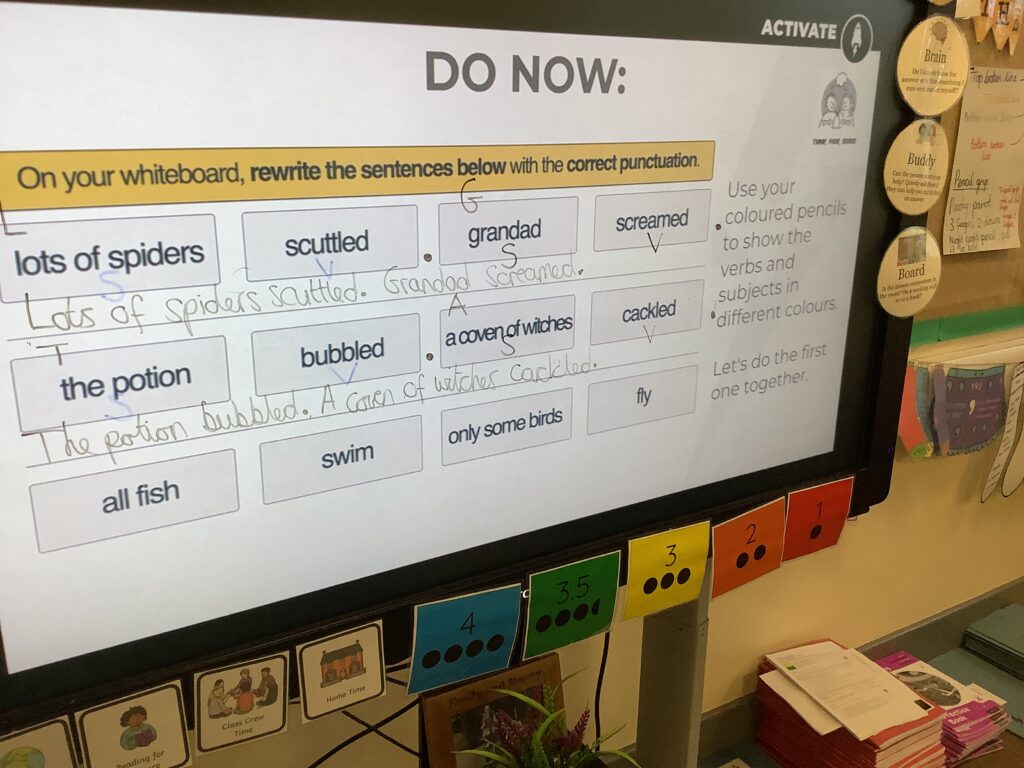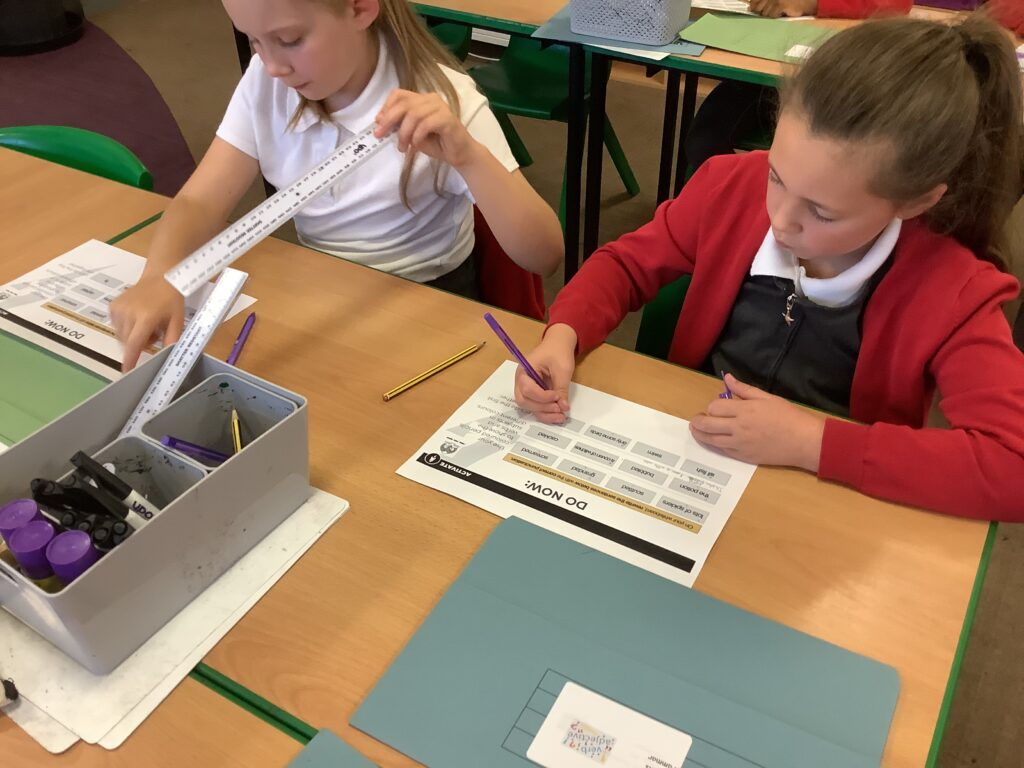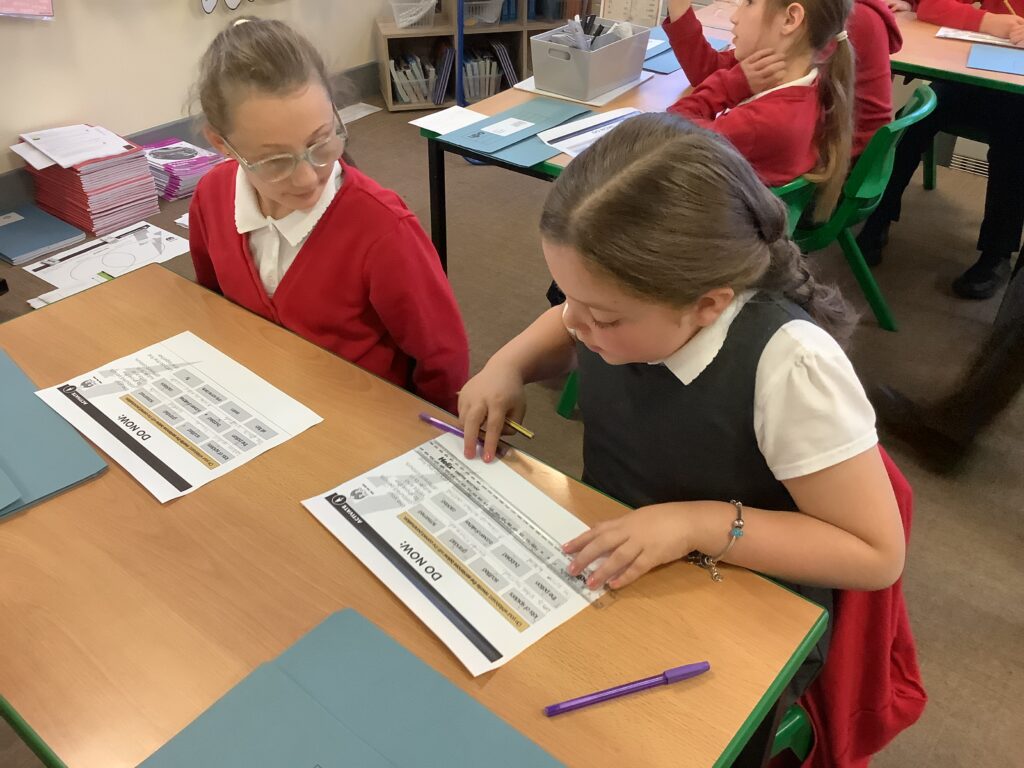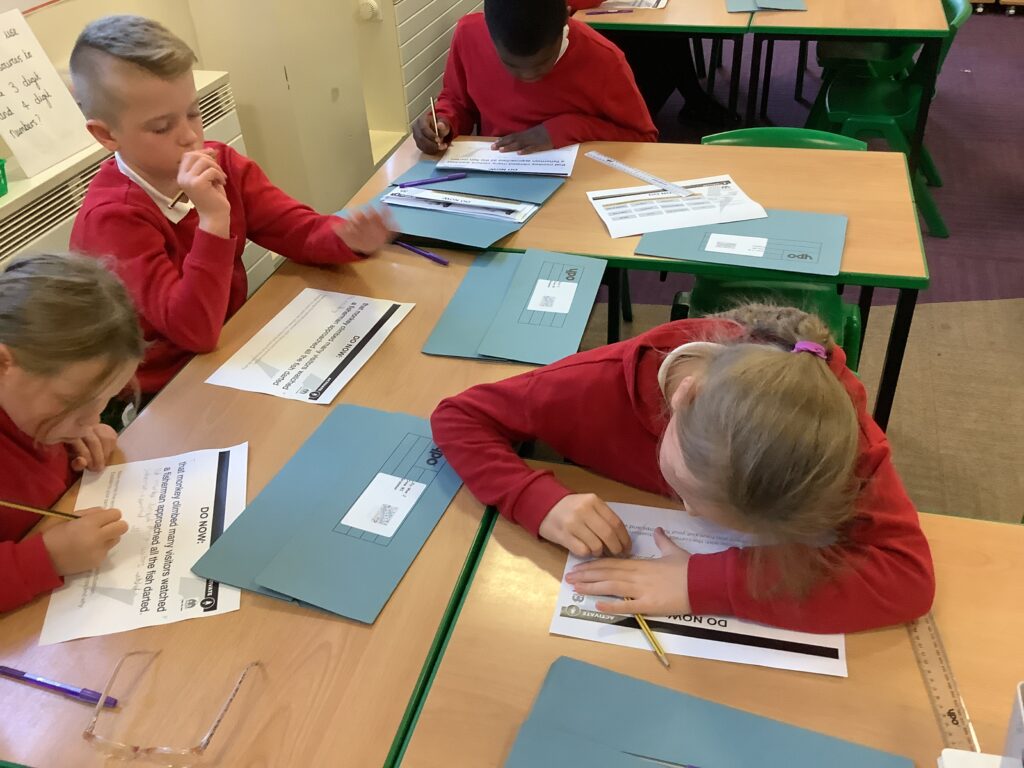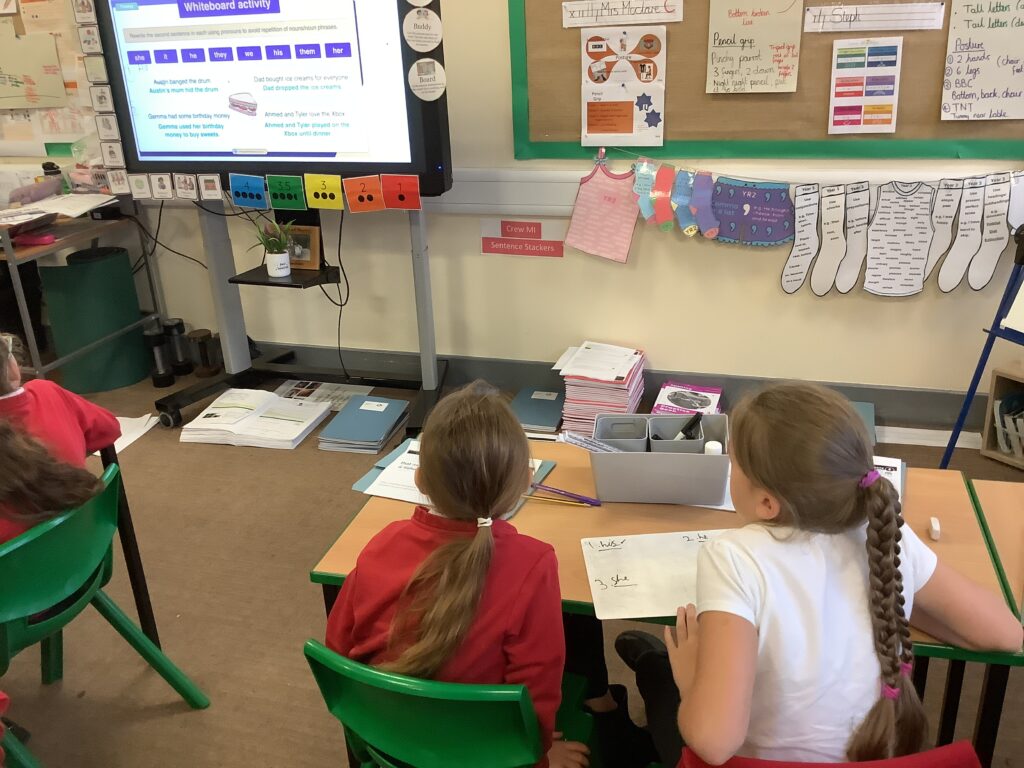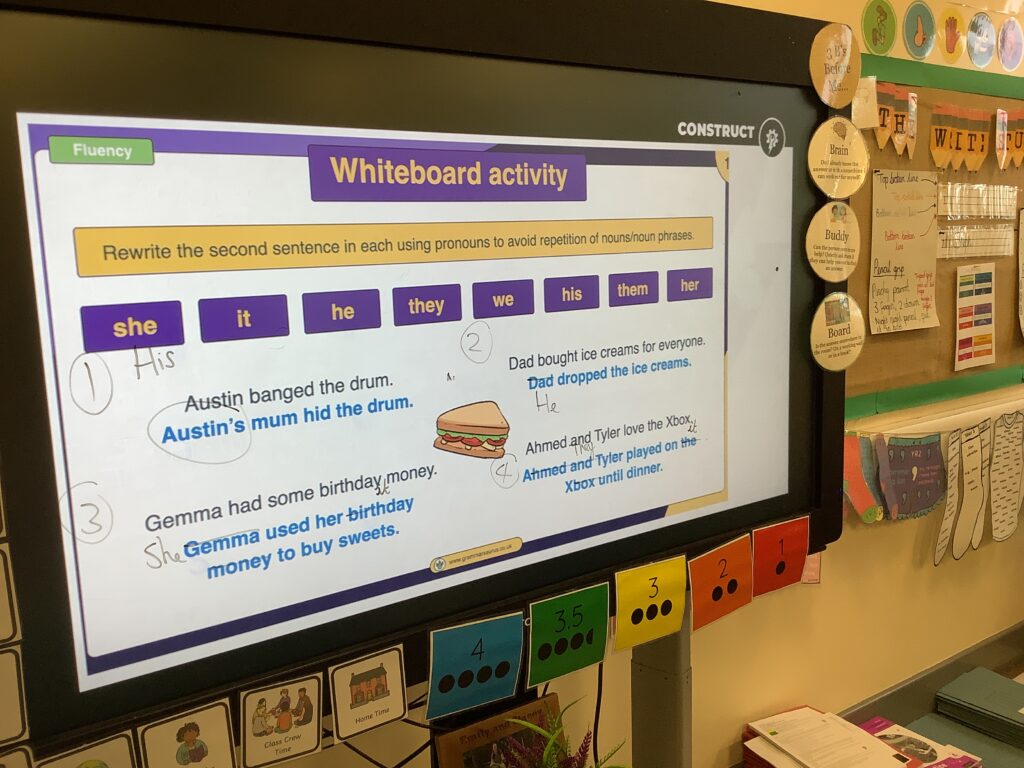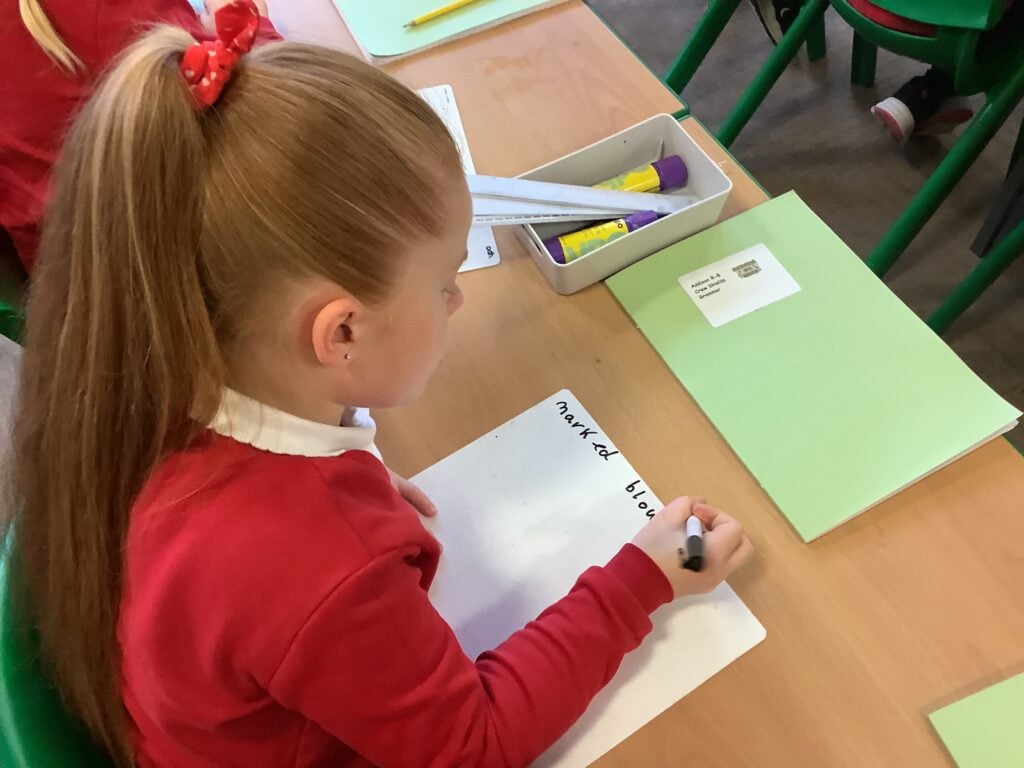
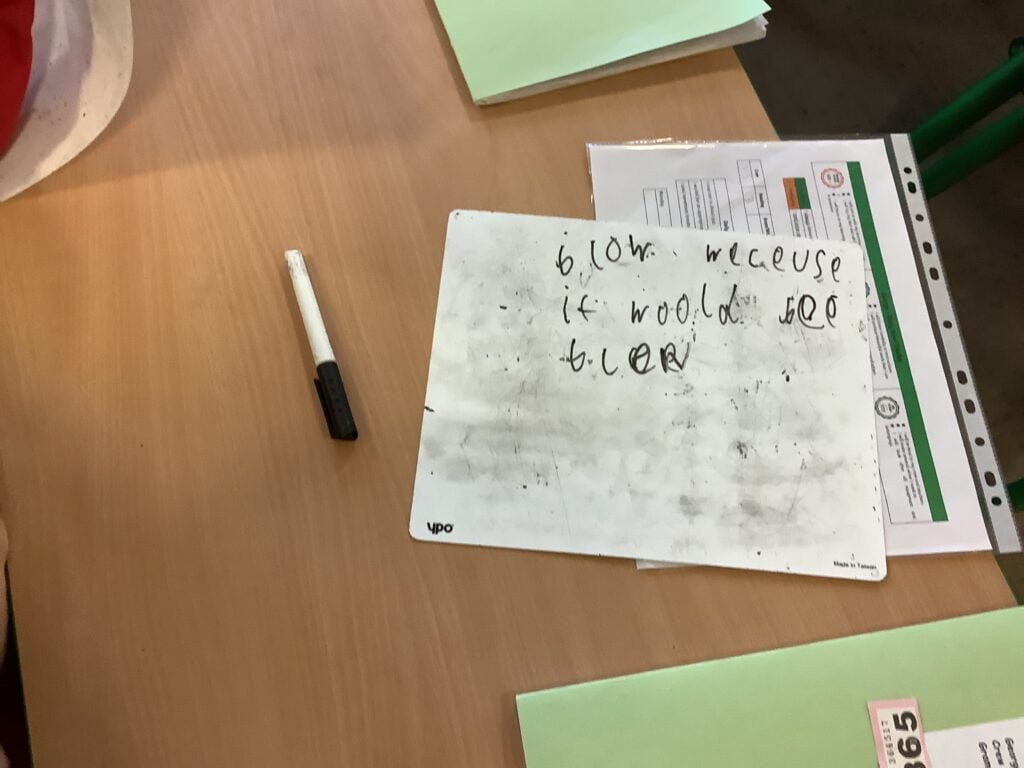
In grammar, we continued to explore irregular verbs and how these change in the past tense. These are words that children will need to learn so we verbally practiced using my turn your turn.


In grammar, we continued to explore irregular verbs and how these change in the past tense. These are words that children will need to learn so we verbally practiced using my turn your turn.
During the last week of half term, Crew Hamill have worked hard to identify the subject of a sentence. The subject is who or what is doing the action within the sentence. To help us do this, we followed a script in which we identified the first verb (action word) and then asked ourselves who or what did that action. To consolidate this learning, we were given jumbled up sentences. Our first job was to structure our sentences. We knew they began with a capital letter and ended with a full stop so these were the first cards we placed. Then we organised the rest of the words until we had a fully independent clause that made sense. Once we’d done this, we identified the verb and subject.
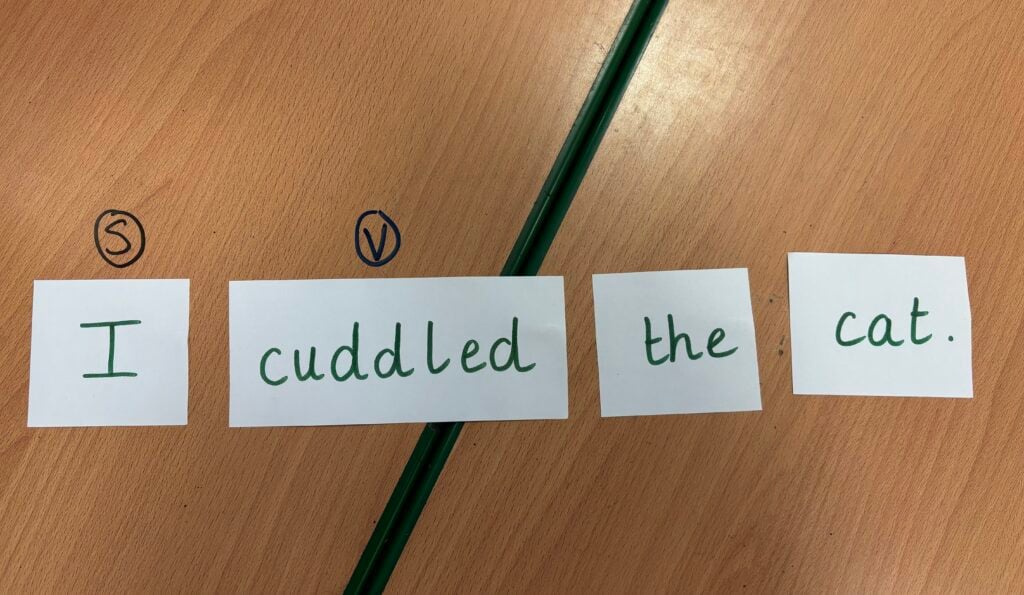
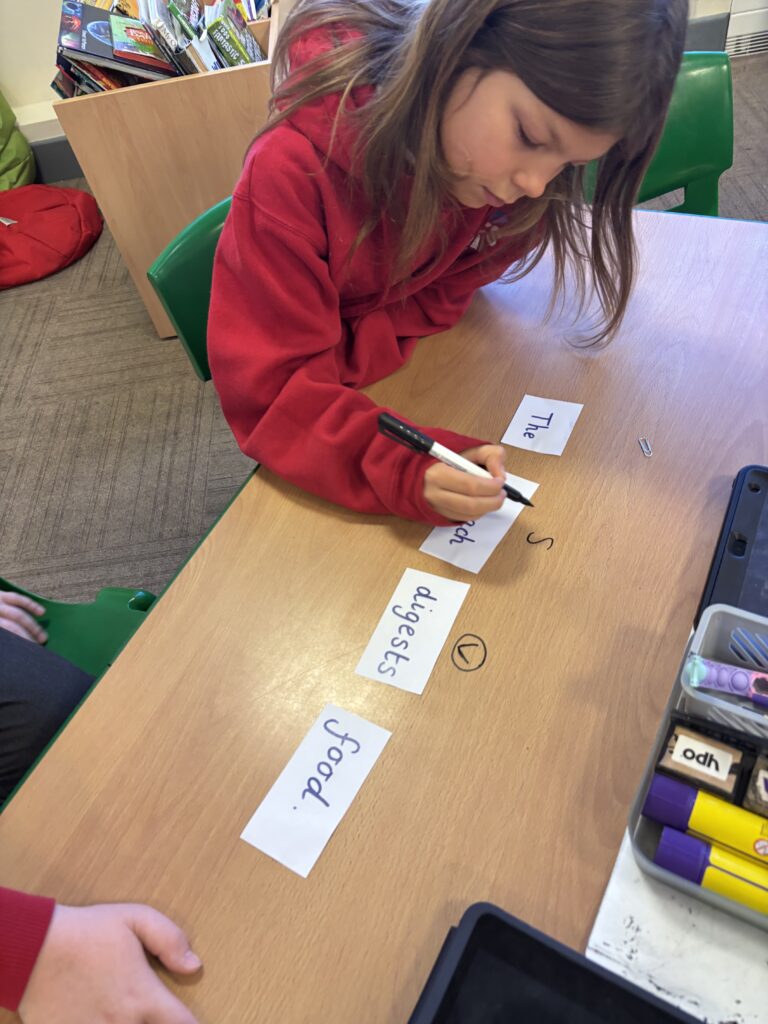
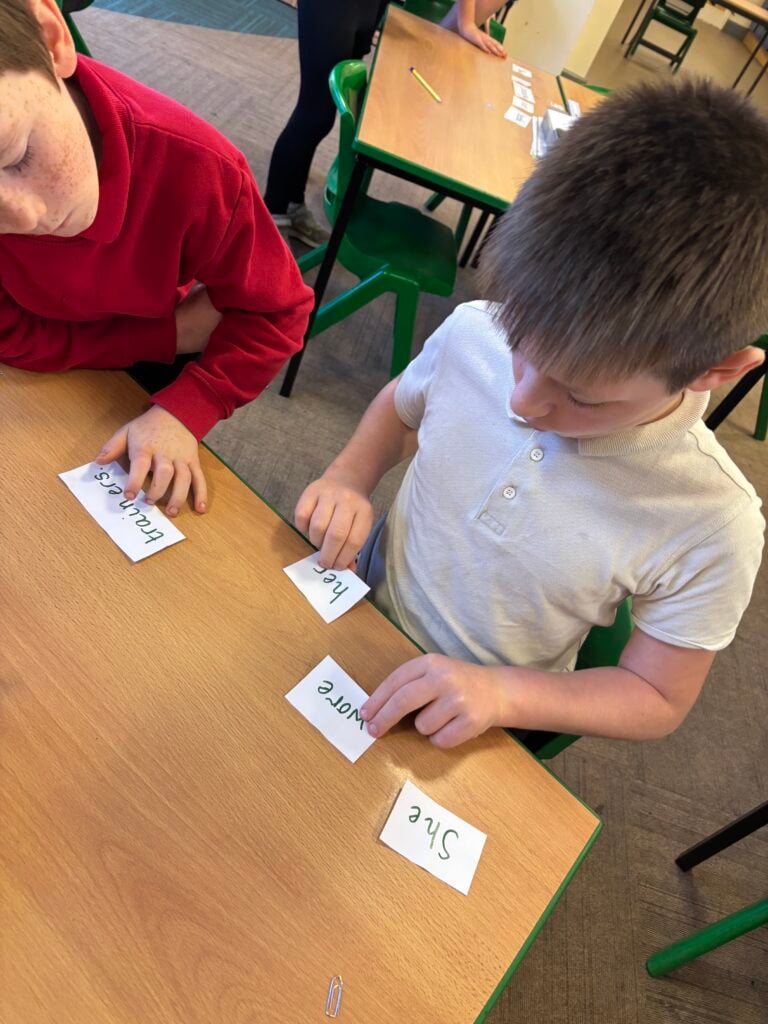
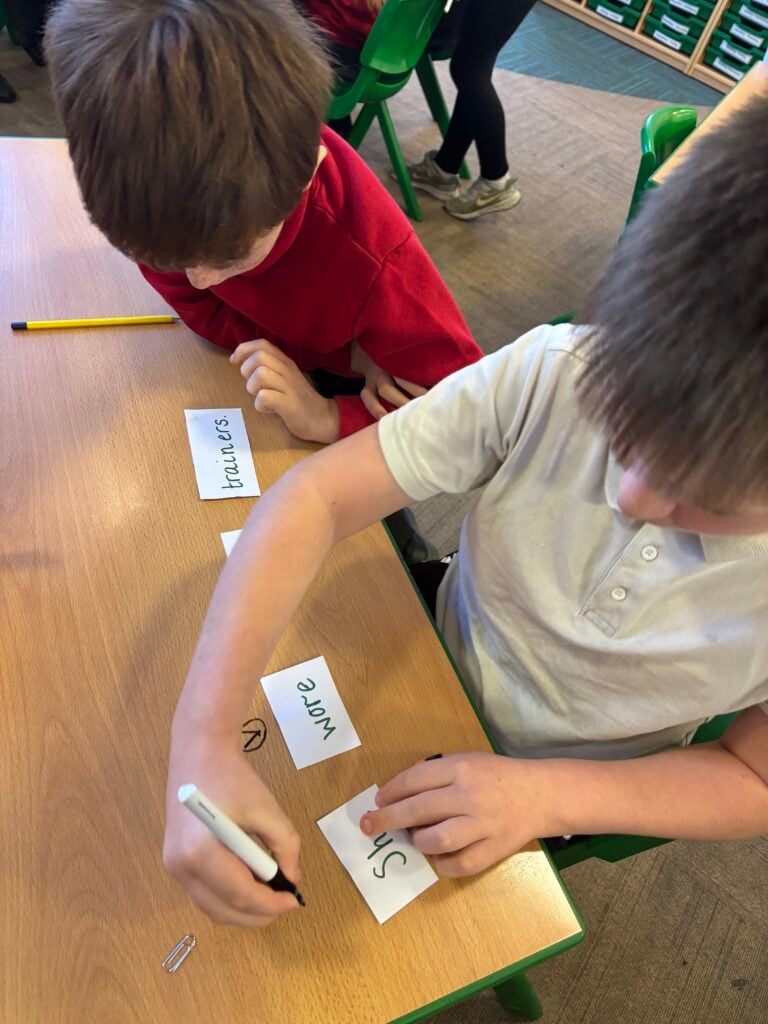
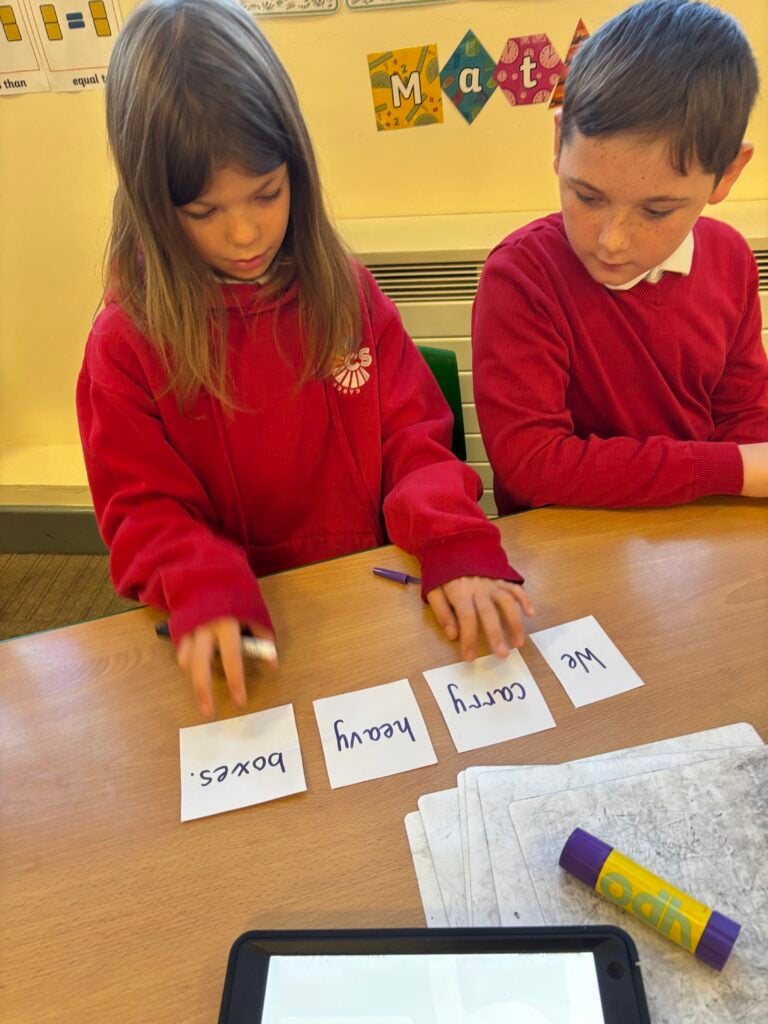
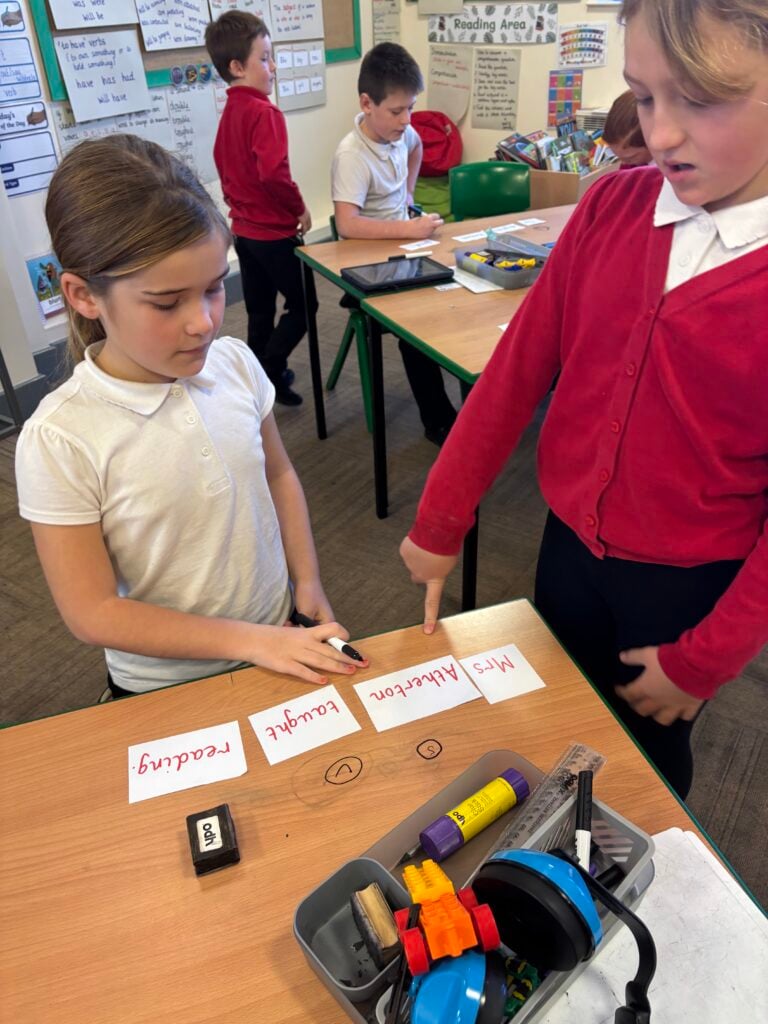
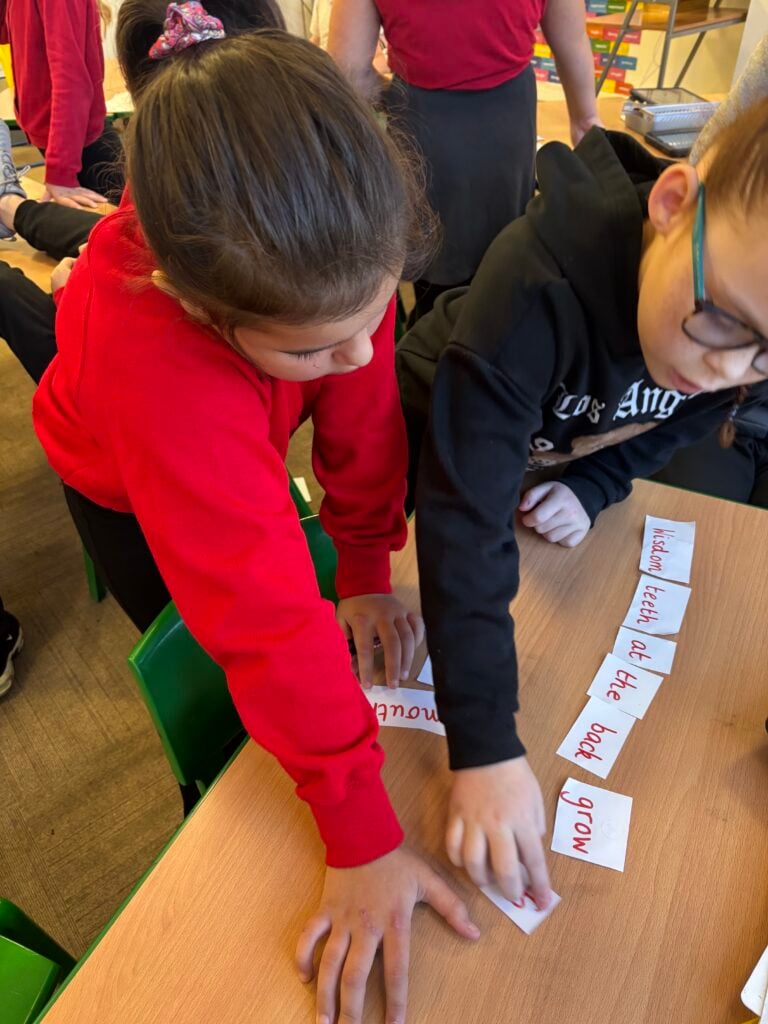
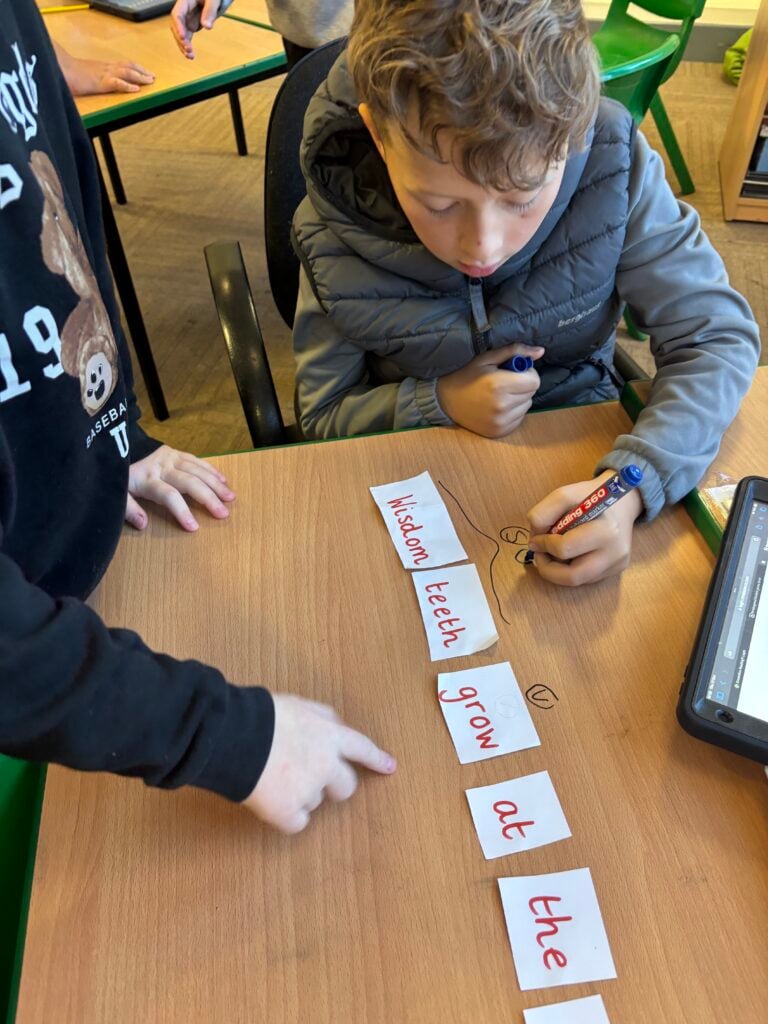
Our final lesson on verbs began with a game of charades! We circled up, one person chose a verb card and then they had to act out their verb for the rest of the crew to guess. We had a giggle when Jenson started dancing! Following this, we looked at irregular verbs in the past tense and identified what happened when these formed verb phrases. We then had to identify which verb phrases had been formed correctly and correct any which had the past tense verb wrong.
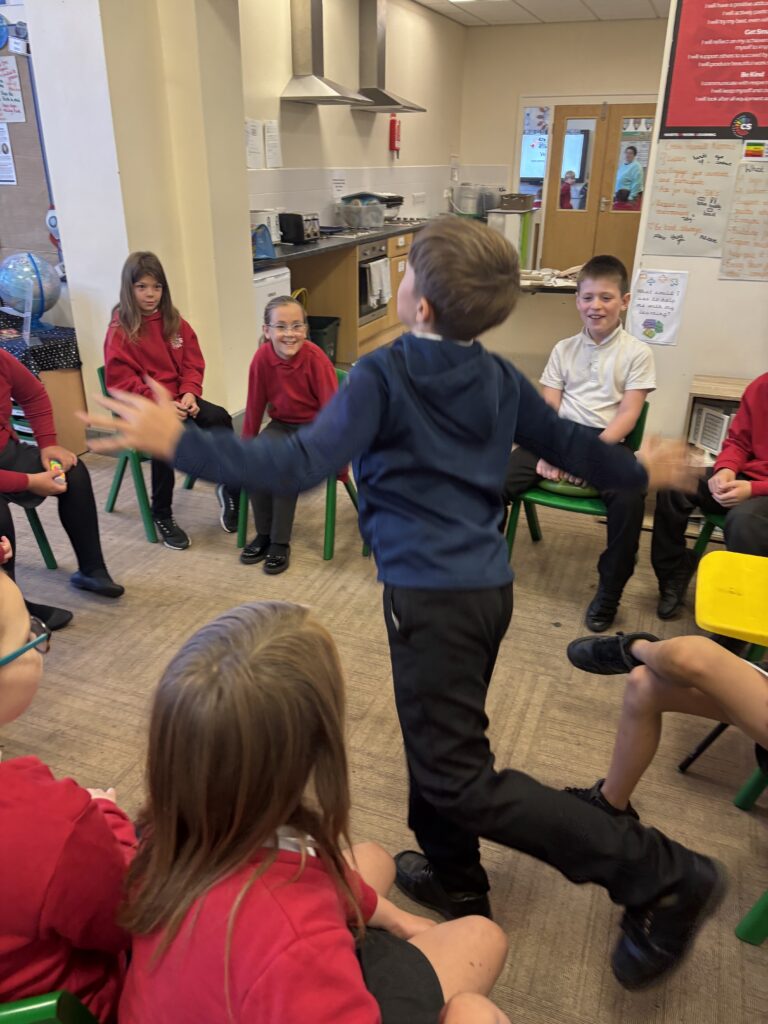
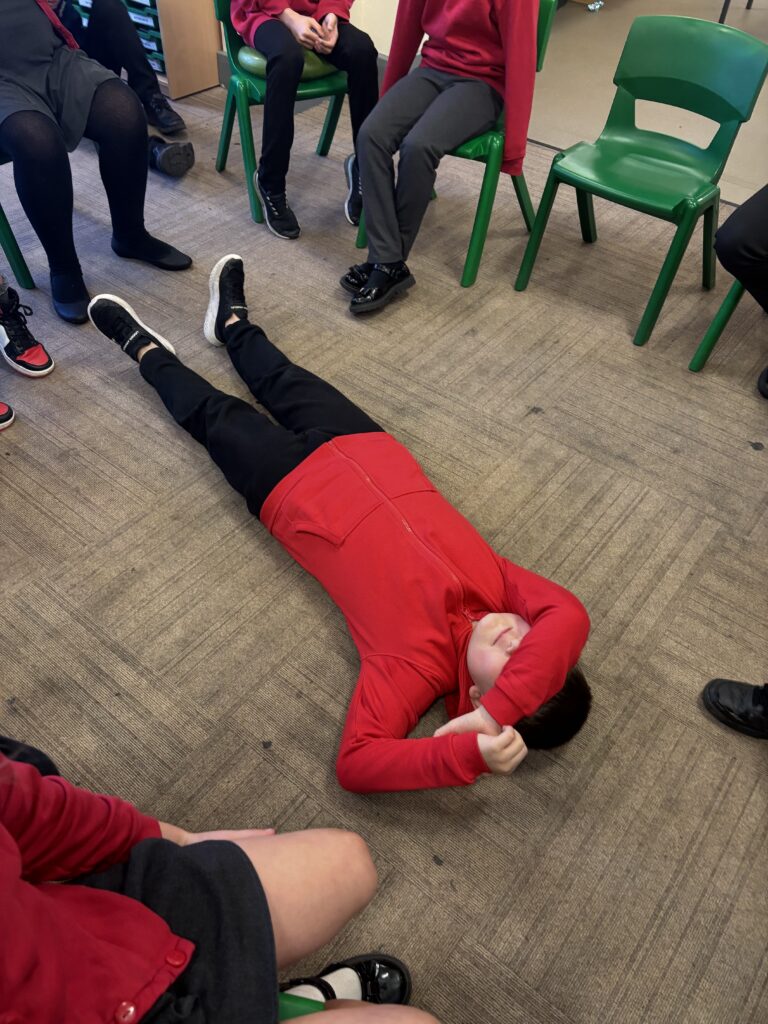
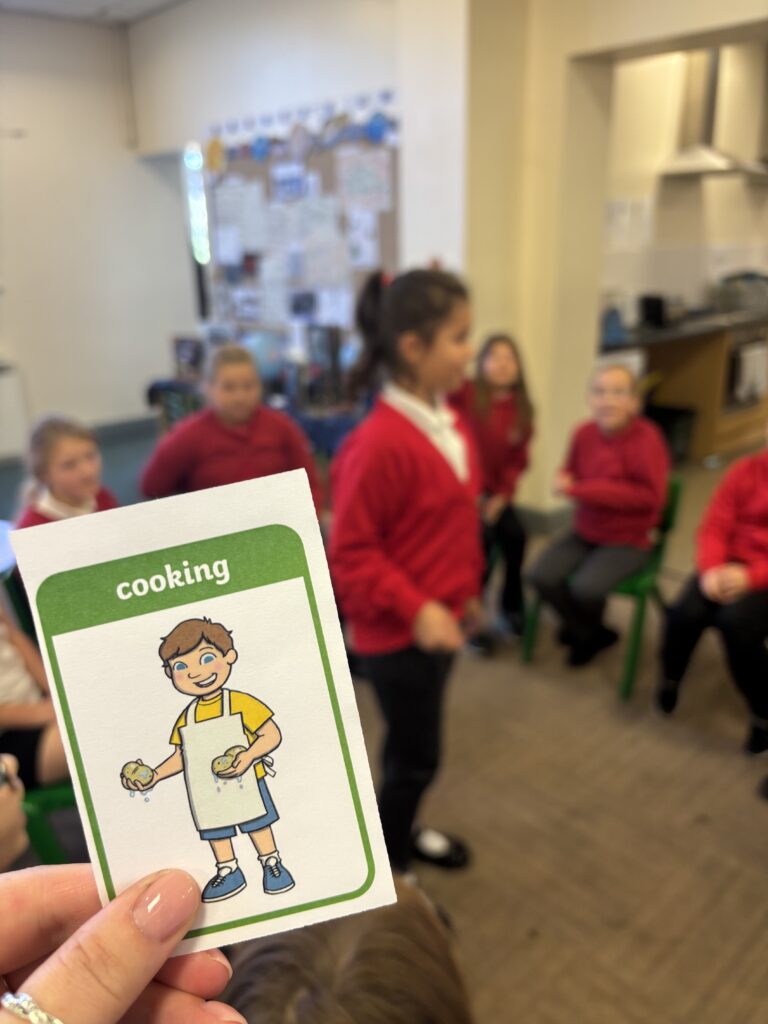
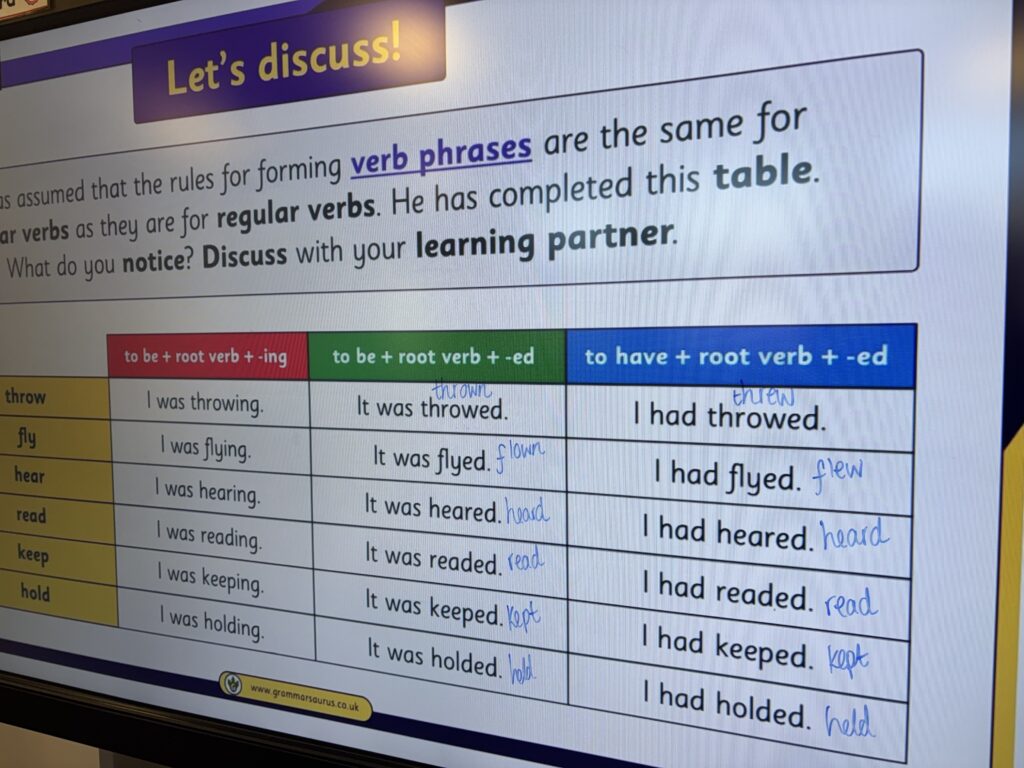
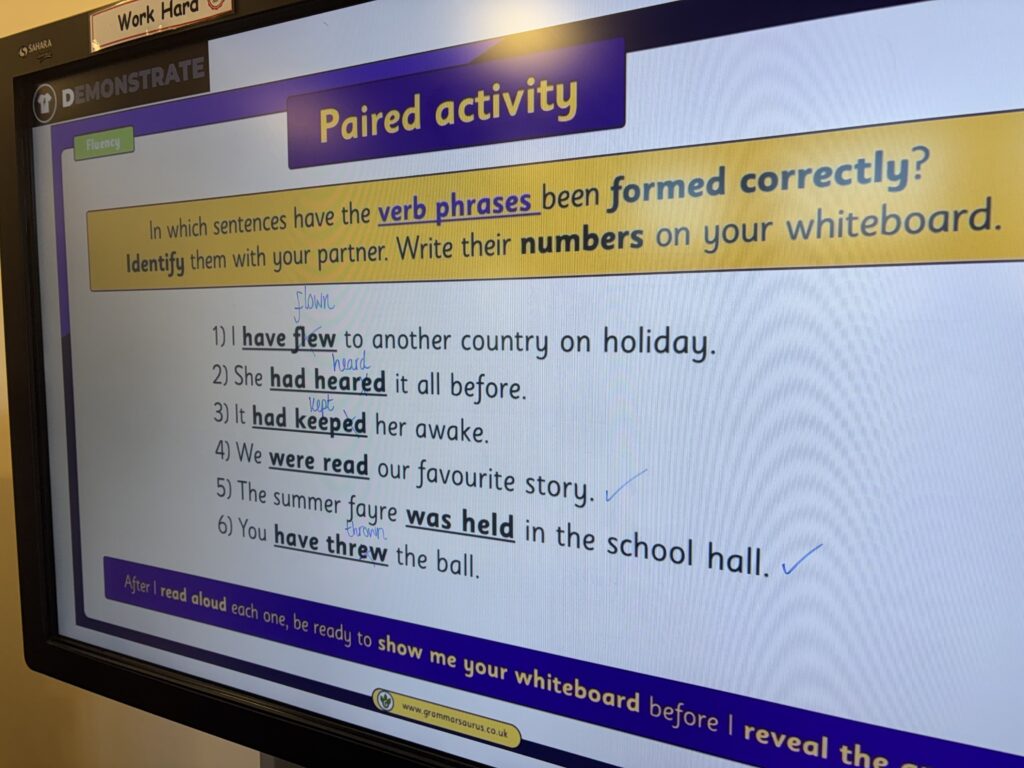
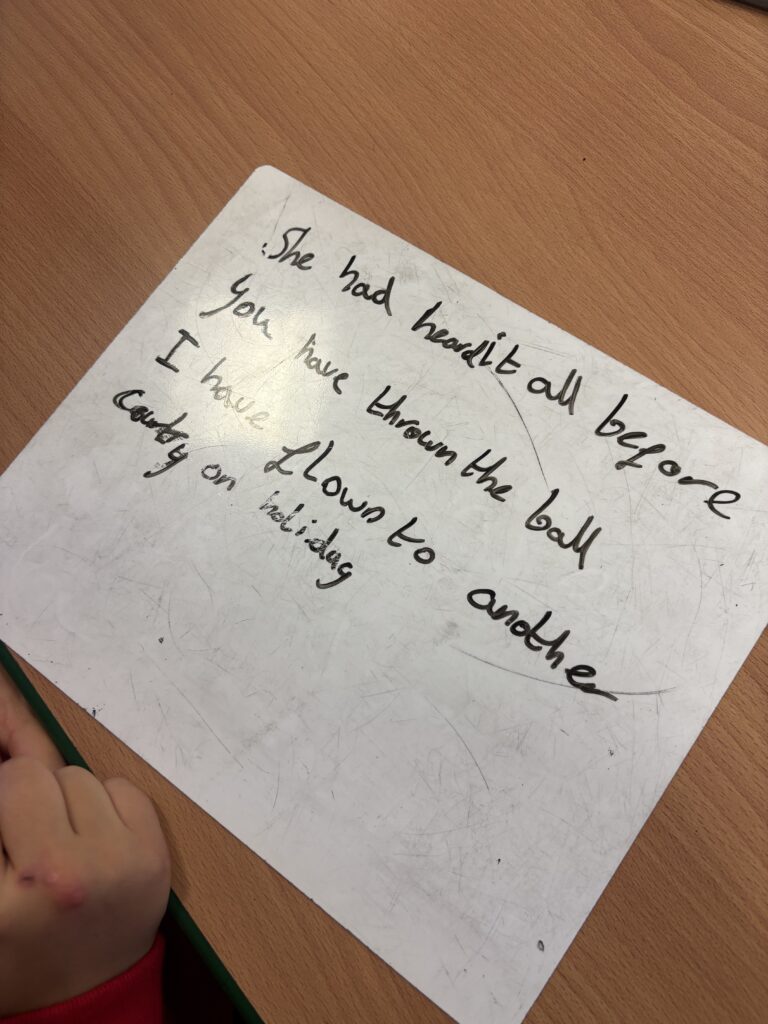
Today we continued our work on single-clause sentences which we are now getting really confident with. We also looked at the ‘leftovers’ thinking about which clause they belong to. We used counters and different coloured pens to show the different clauses and worked in mini crews to check our ideas. Super impressed MI 🙂
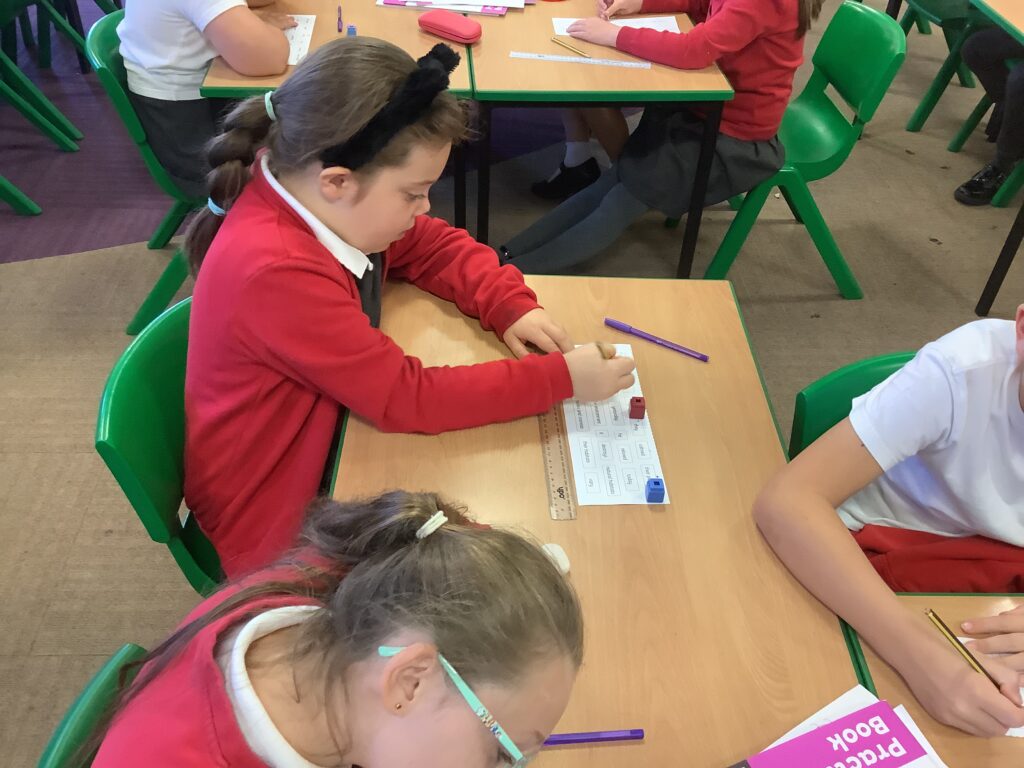
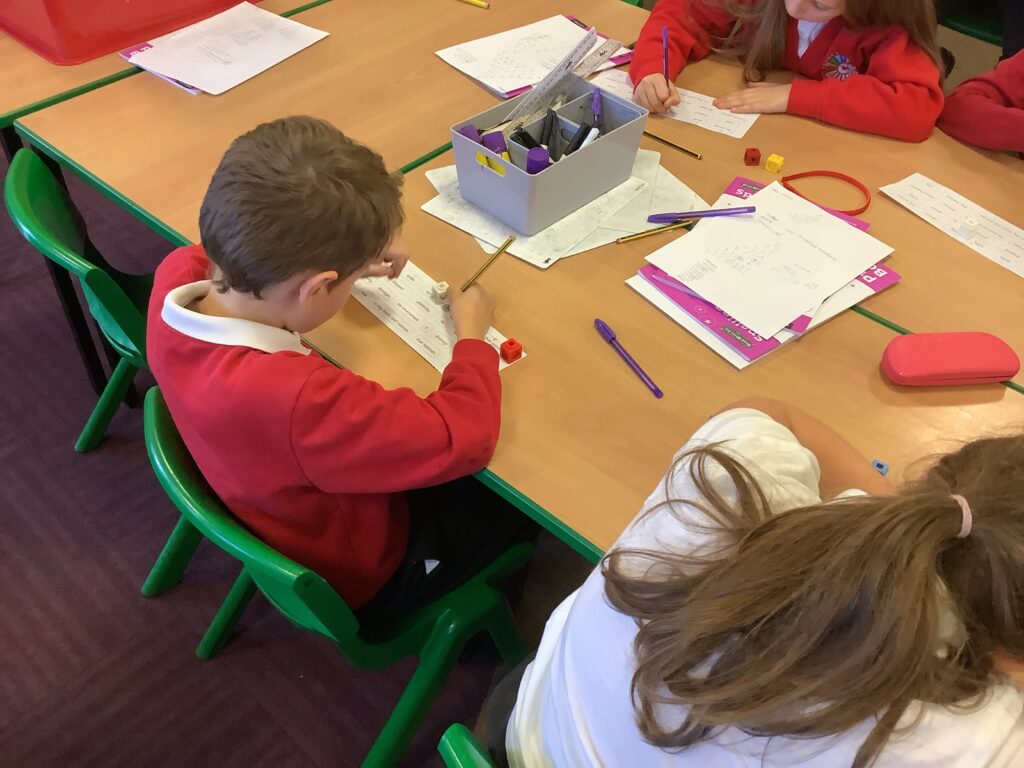
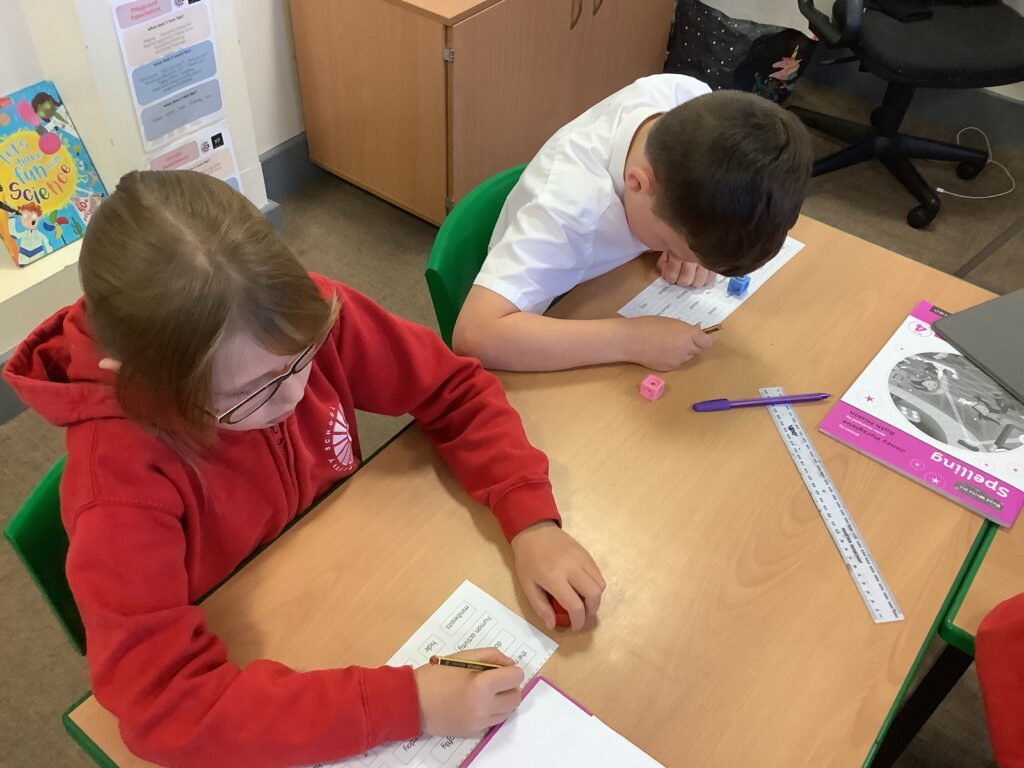
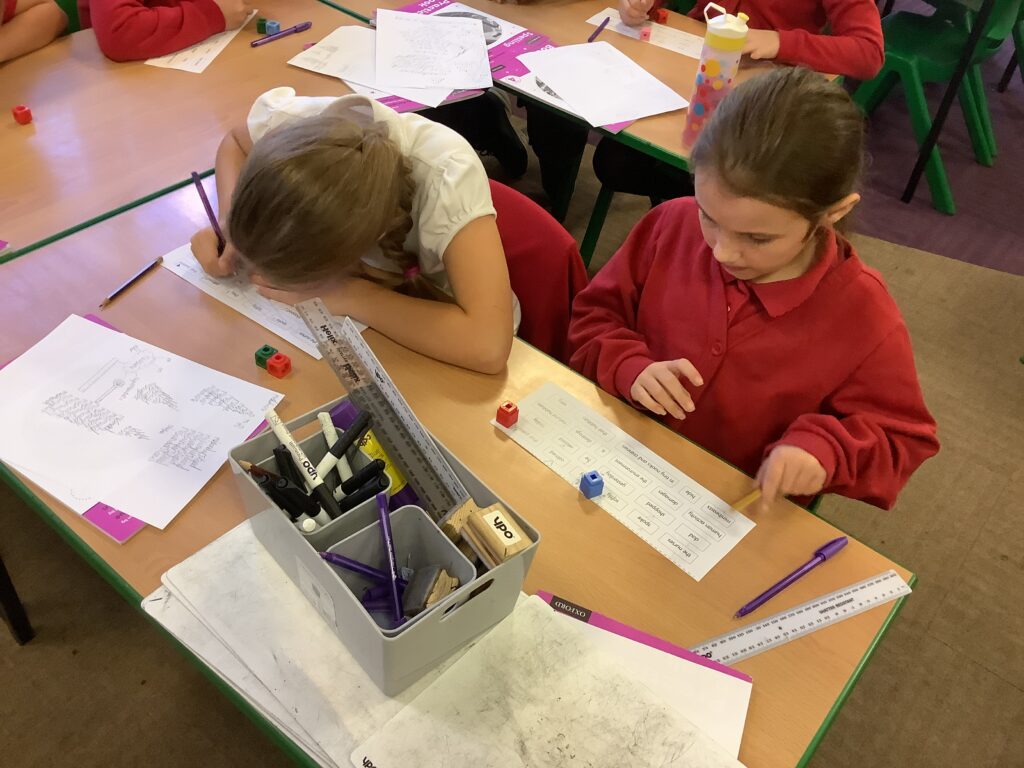
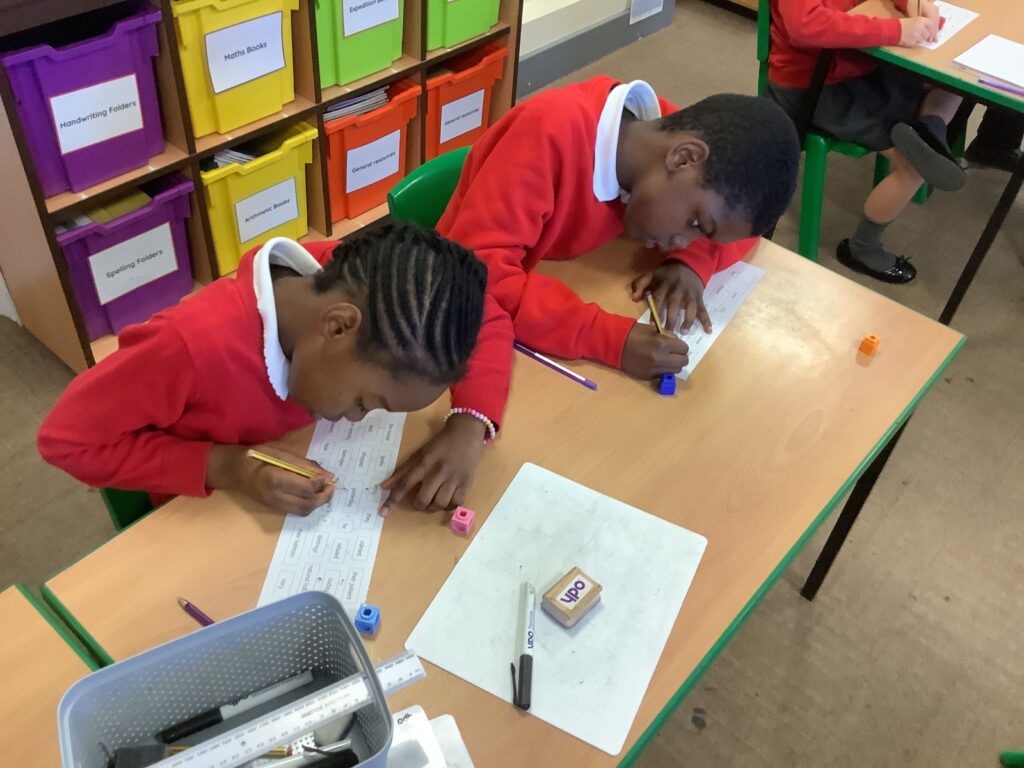
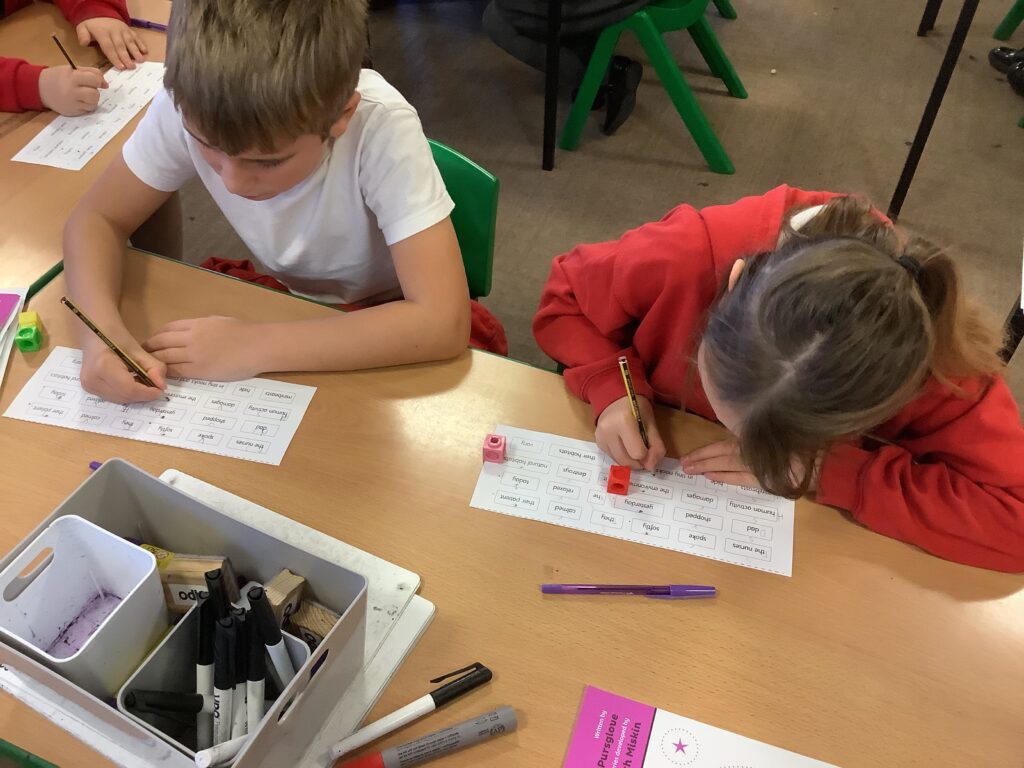
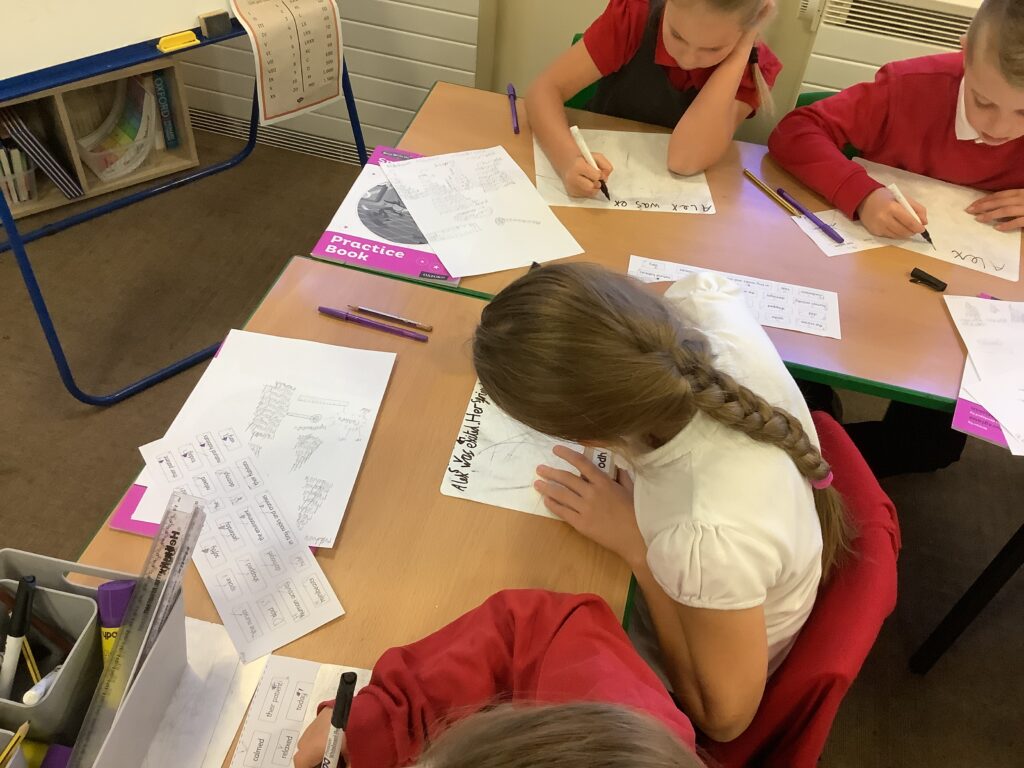
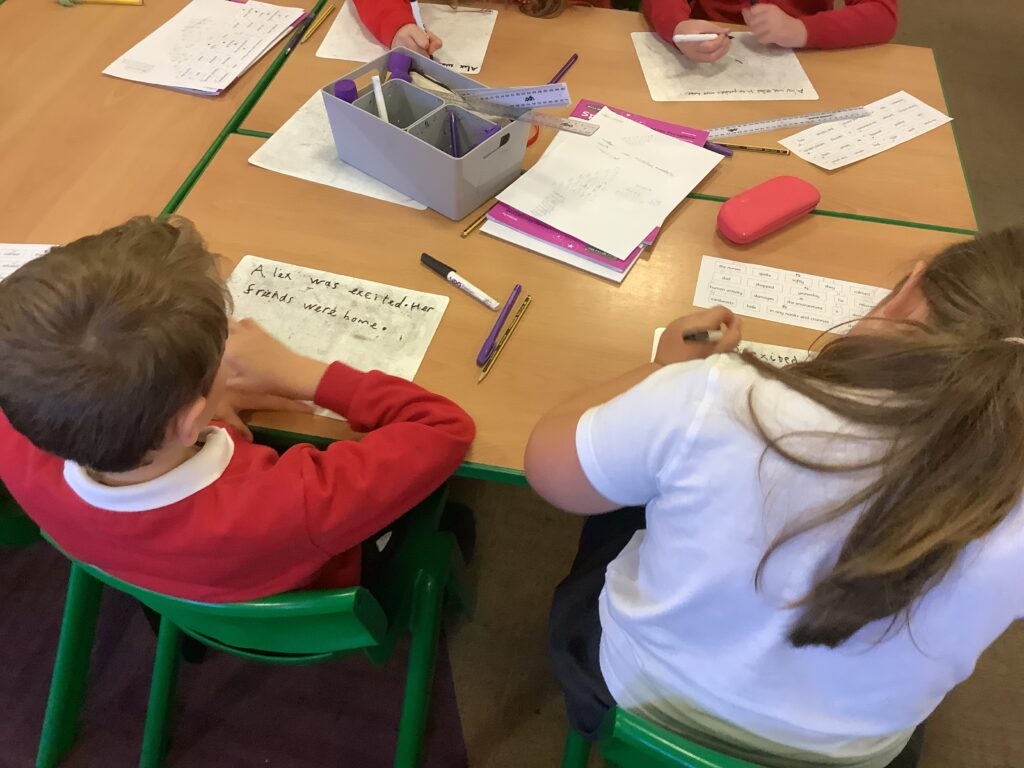
Watch some members of Crew Mcloughlin demonstrating their knowledge of ‘what is a subject?’ in our grammar lesson.
Once we were secure in our knowledge of regular verbs and regular verb phrases, we moved on to looking at irregular verbs. These are verbs in which the root word changes when you turn them into past tense. For example, run -> ran. We activated our learning by playing a game of stand up, sit down. We were shown a number of verbs and had to stand up if we believed they were an irregular verb or stay sat down if we believed they were a regular verb. Following this, we looked at a selection of verbs and had to identify the odd one out. We worked in mini crews and were able to identify that 3 out of 4 of our verbs were regular and the odd one out was an irregular verb. We then had a go at turning irregular verbs into past tense – fly -> flew, throw -> threw etc. We ended the lesson by completing an exit ticket to consolidate our learning, showing that we could write irregular verbs in past, present and future tense.
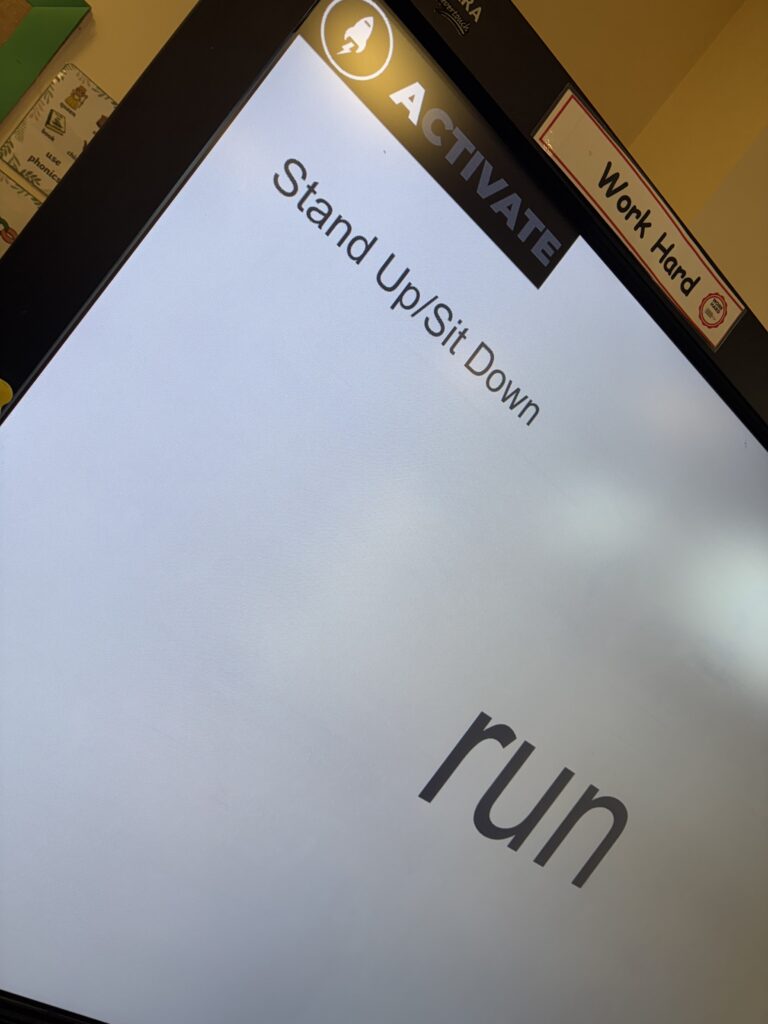
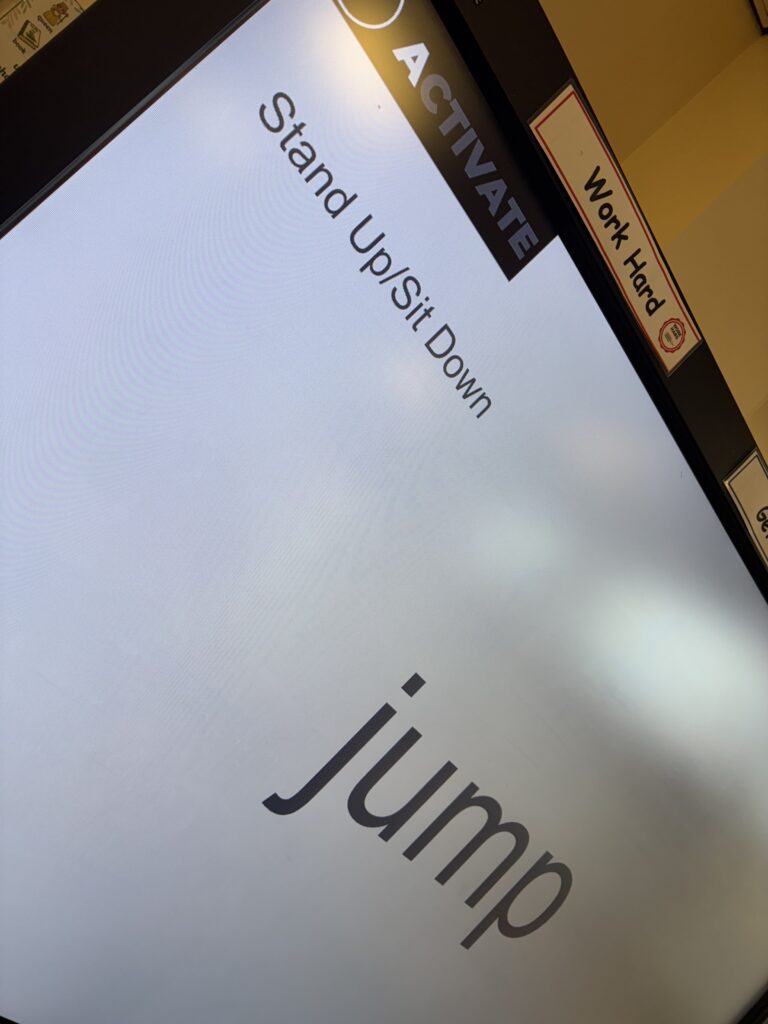
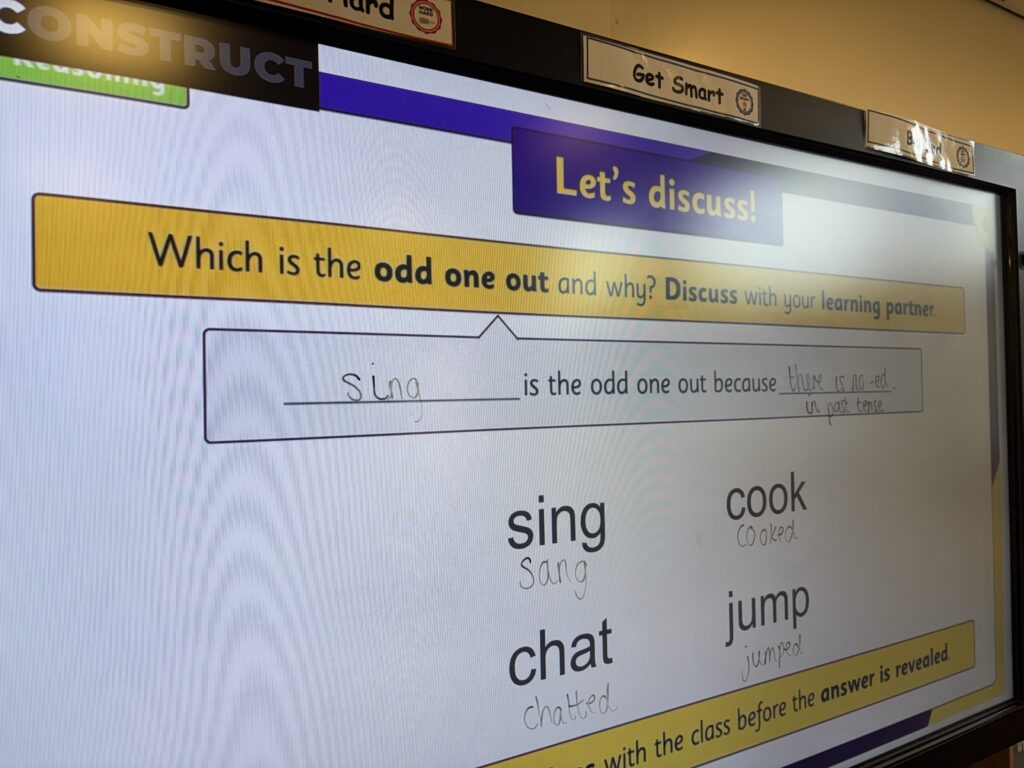
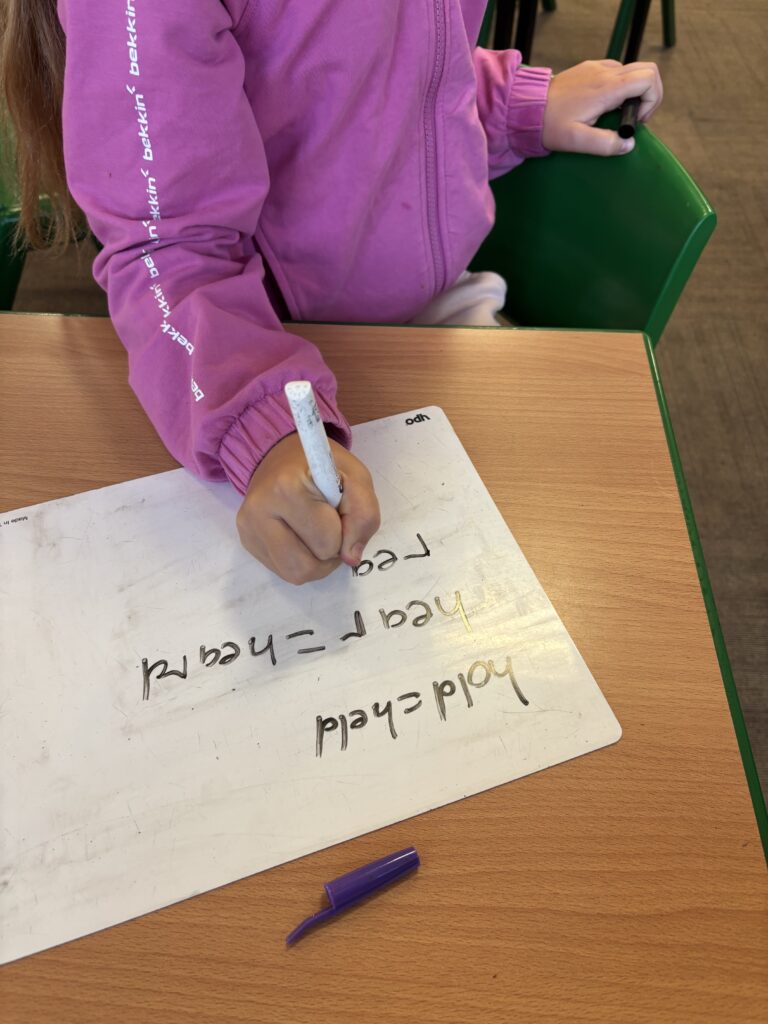
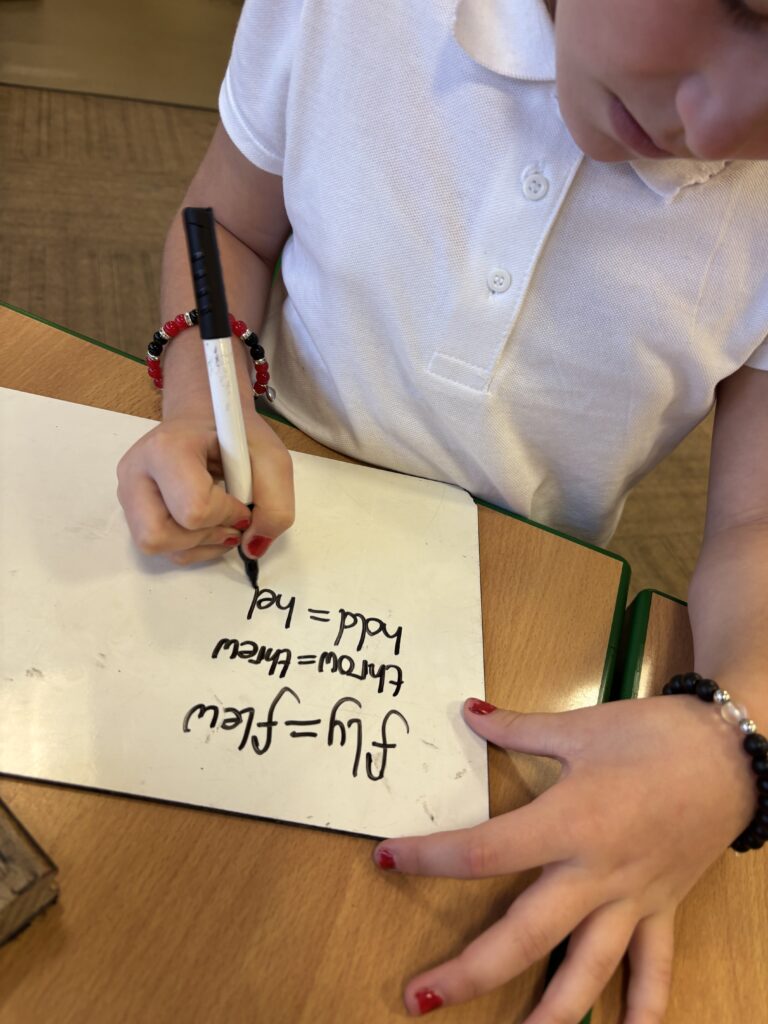
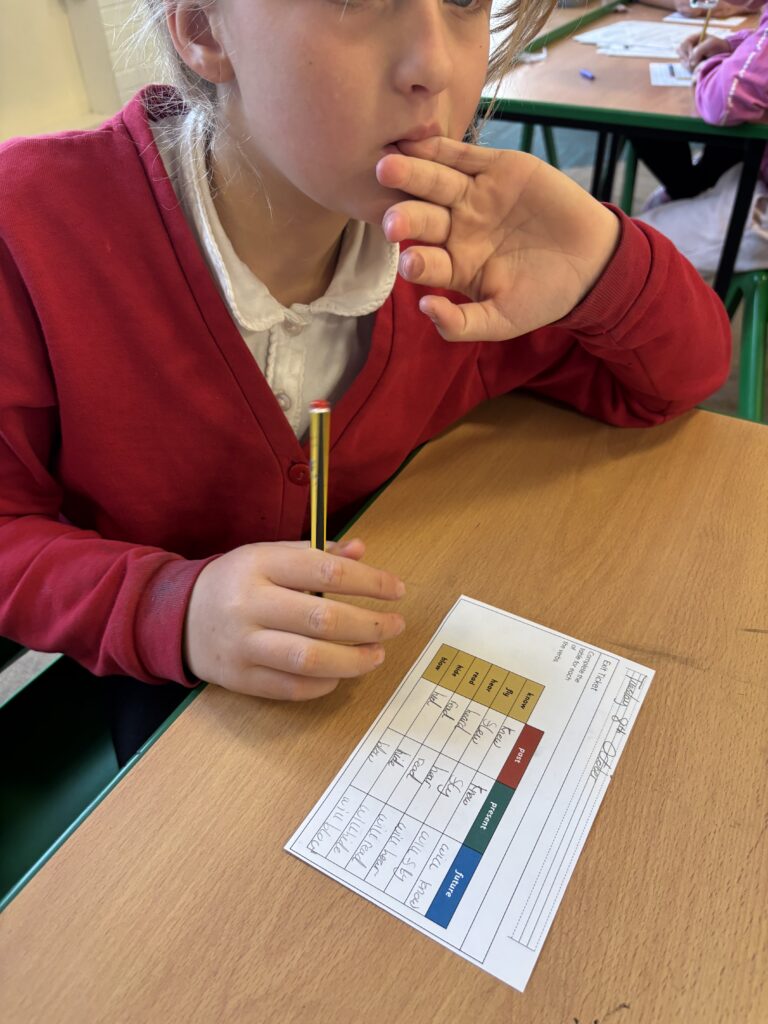
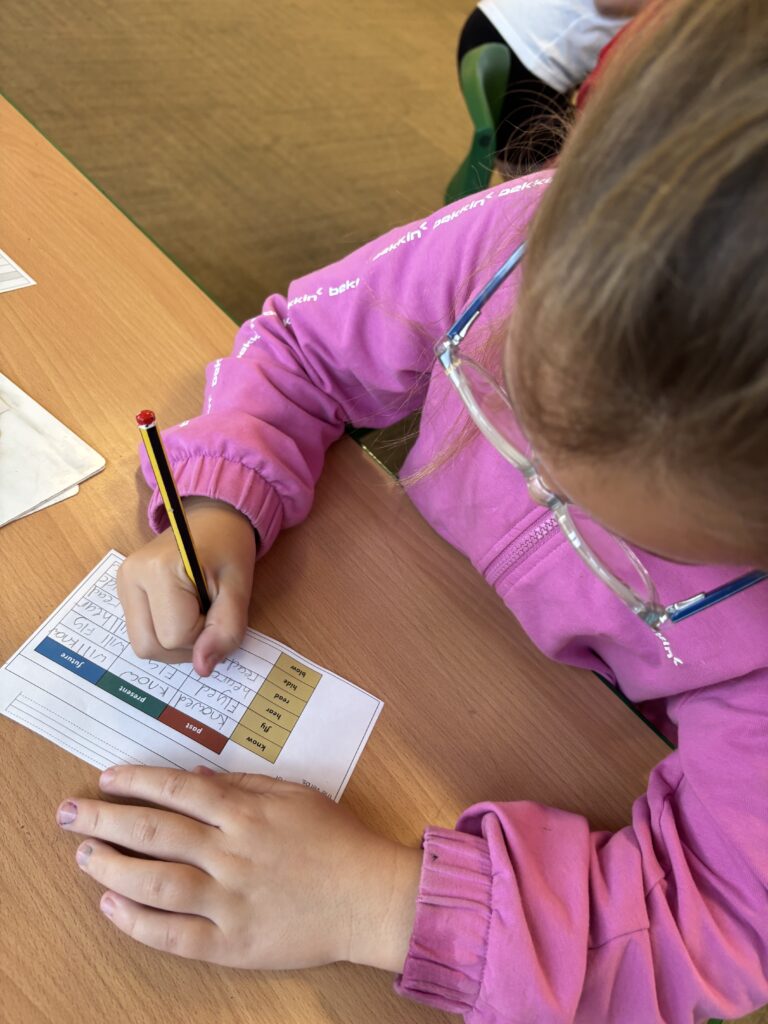
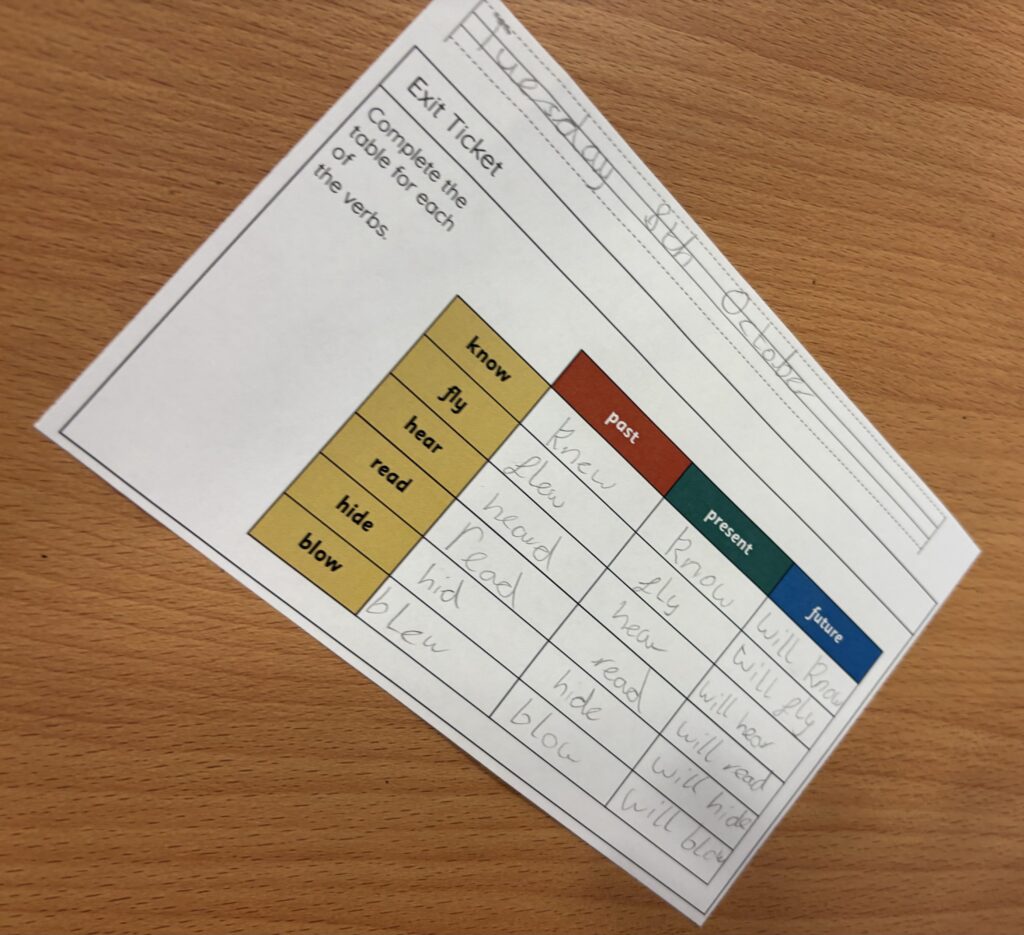
We continued our PVPG journey this week by starting with regular verb phrases. We activated our learning with a consolidation of our to be and to have verbs, organising them into two groups. We then had a quick recap of modal verbs and had a go at writing some simple sentences that included these. Once we had done this, we looked again at verb phrases, refreshing our memory from the previous lesson. We then identified regular verb phrases within sentences and completed our exit ticket to consolidate our learning.
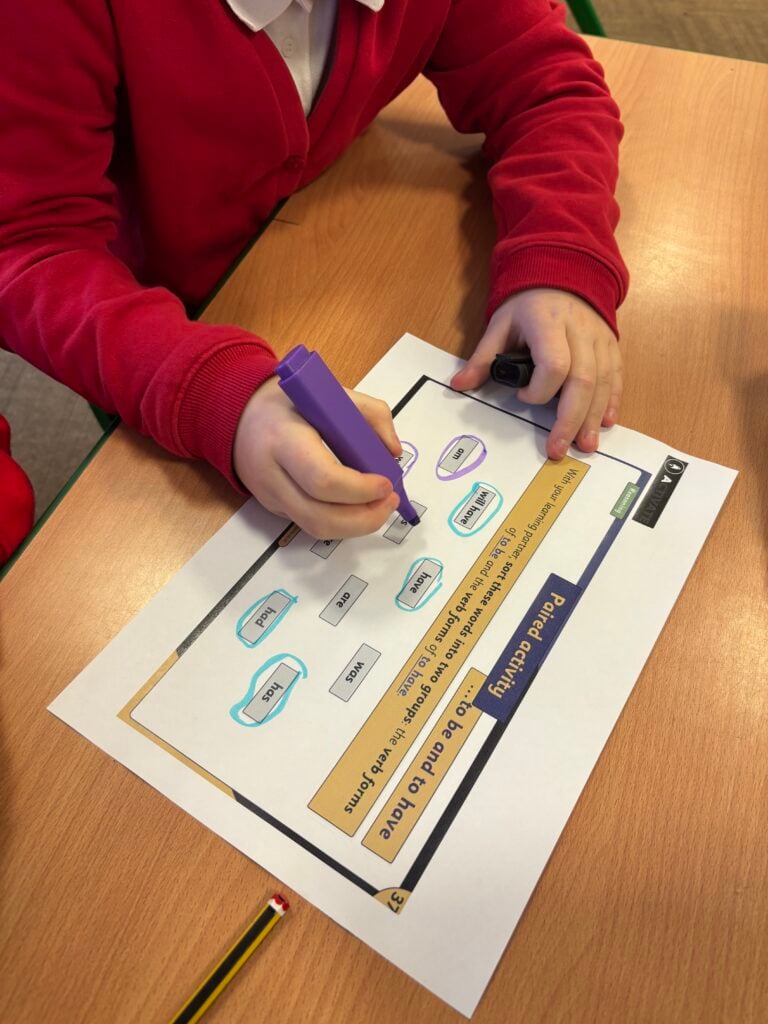
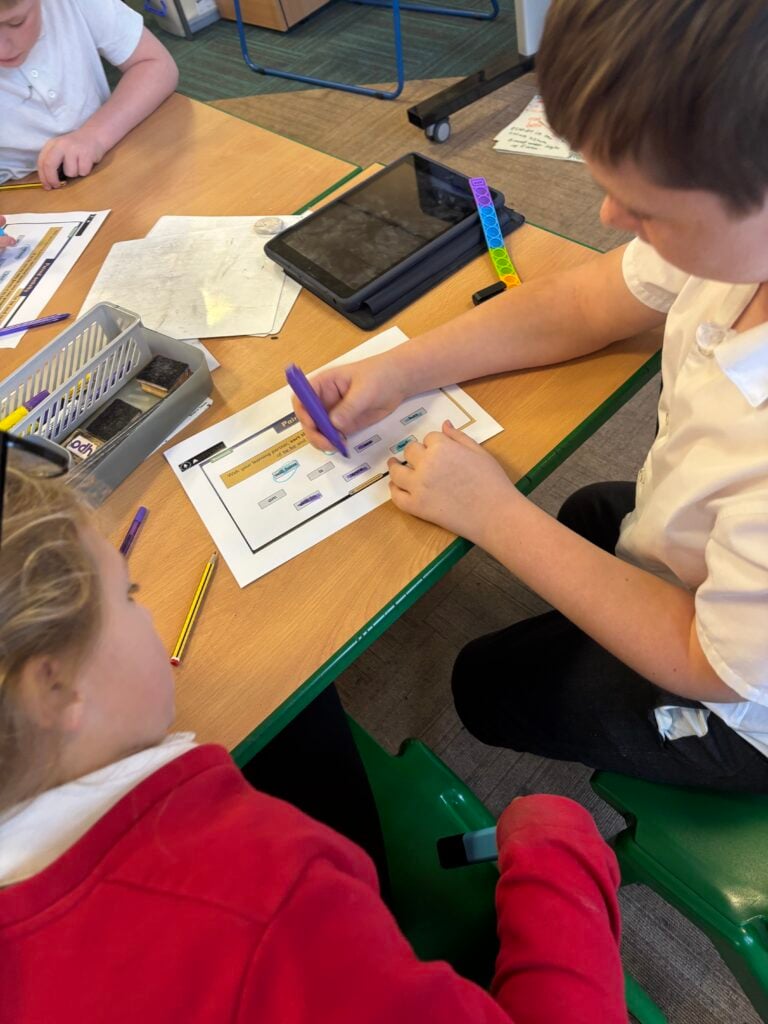
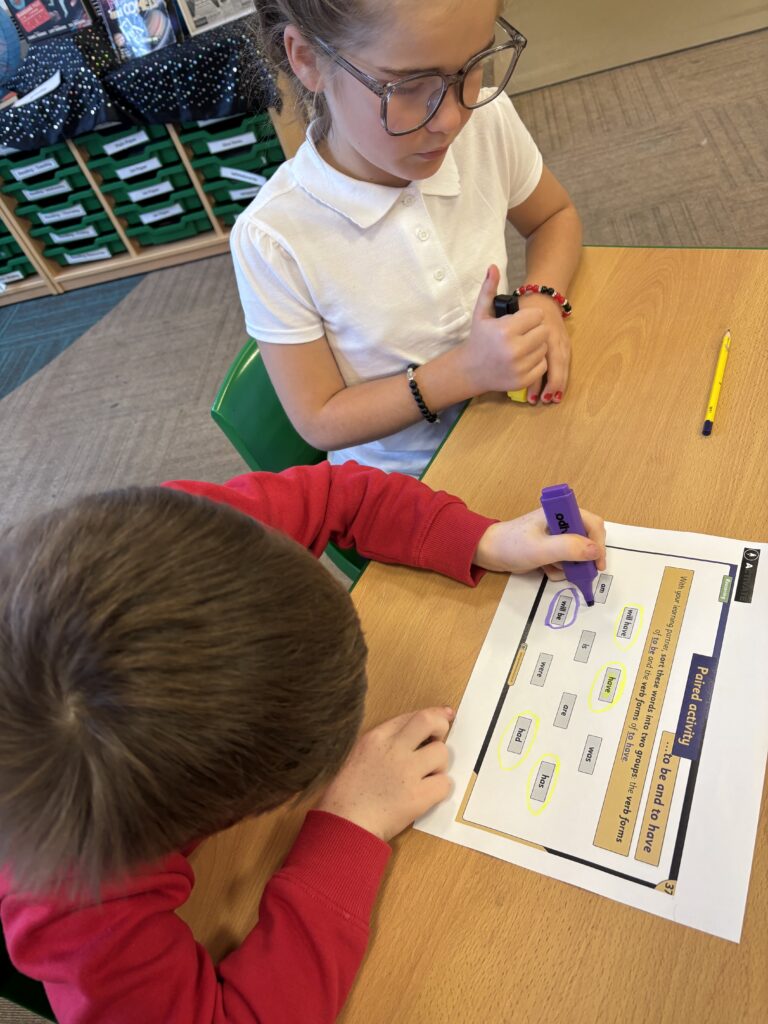
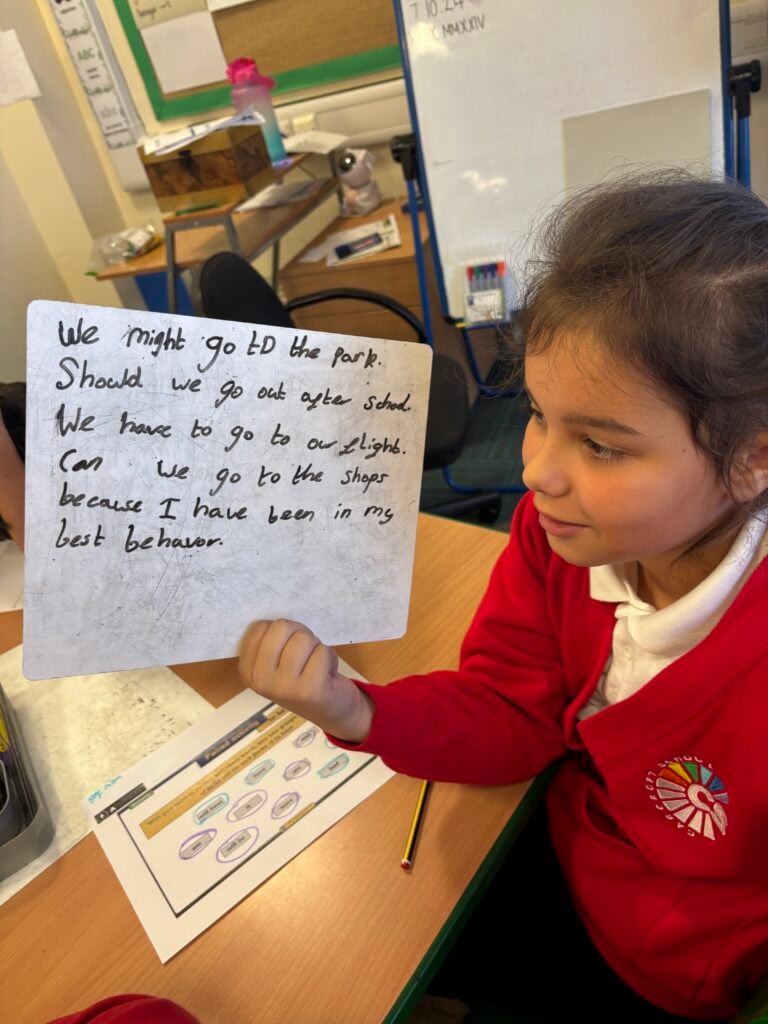
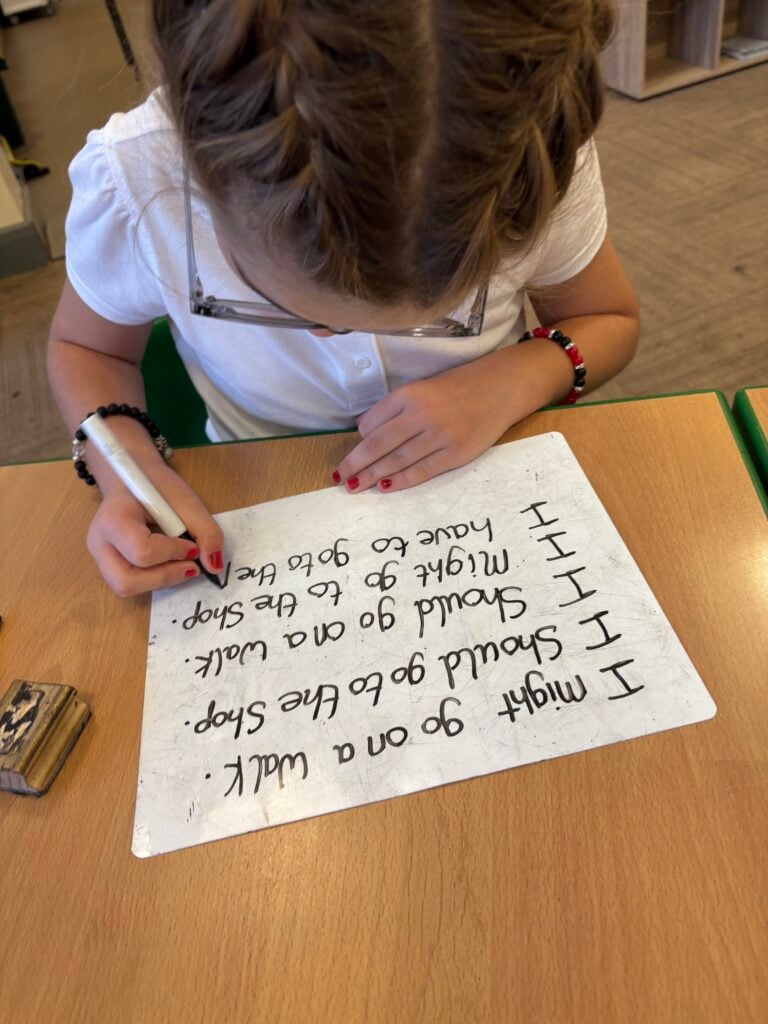
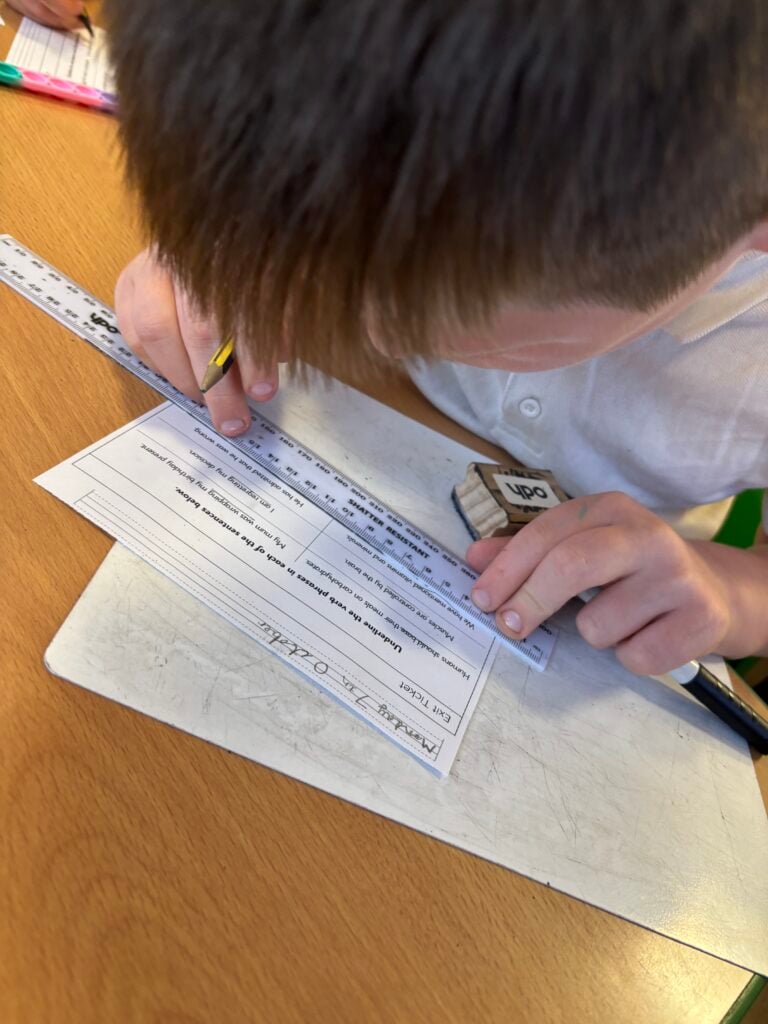
Crew McLoughlin are blowing me away with our knowledge of nouns and verbs! In our latest unit focusing on verbs we have not just covered verbs to be, verbs to have and action verbs but secured our knowledge on singular and plural, simple past, present and future tense. Whilst covering this we have discussed standard English and the use of regular and irregular verbs in verb phrases.
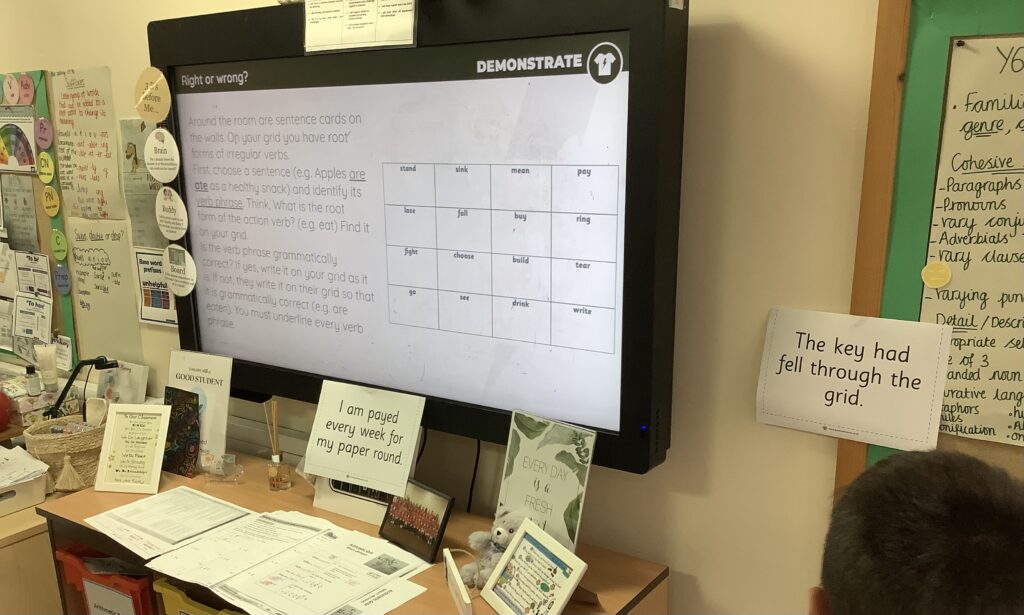
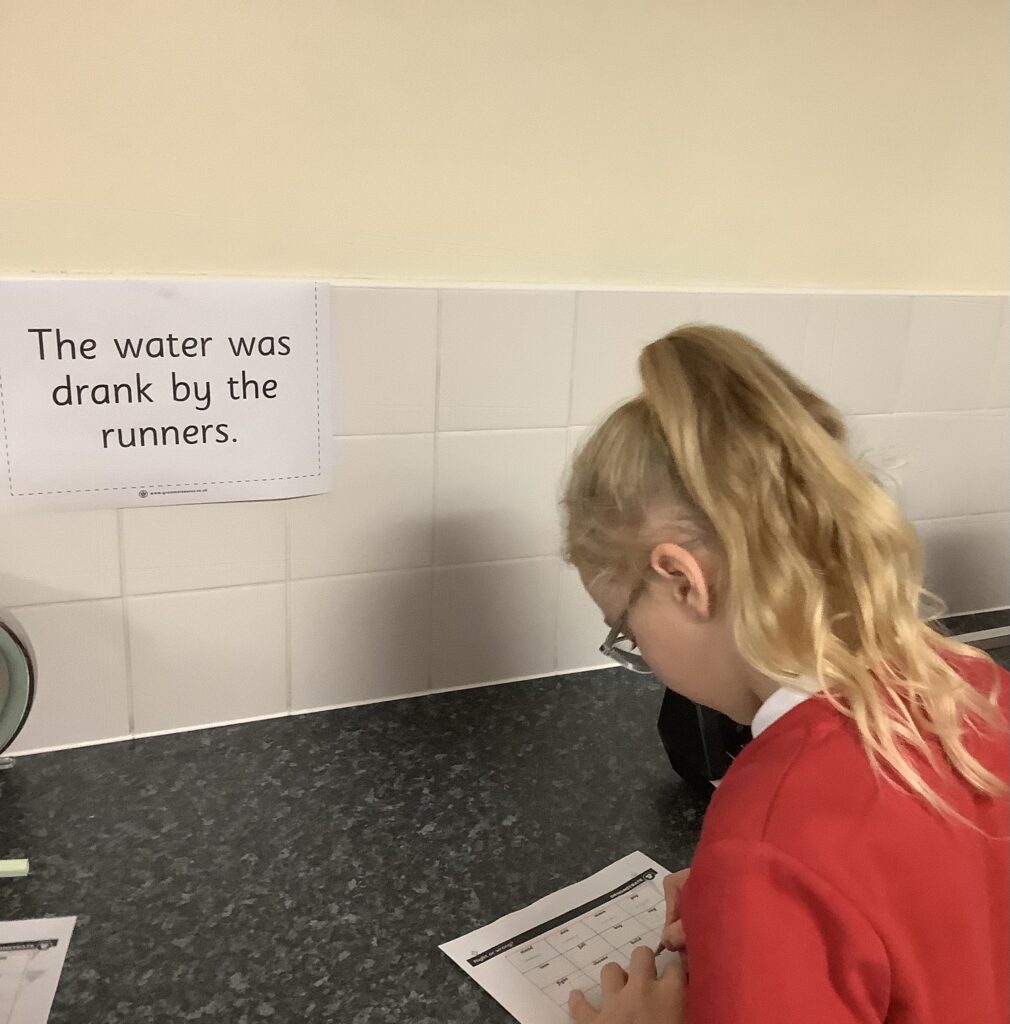
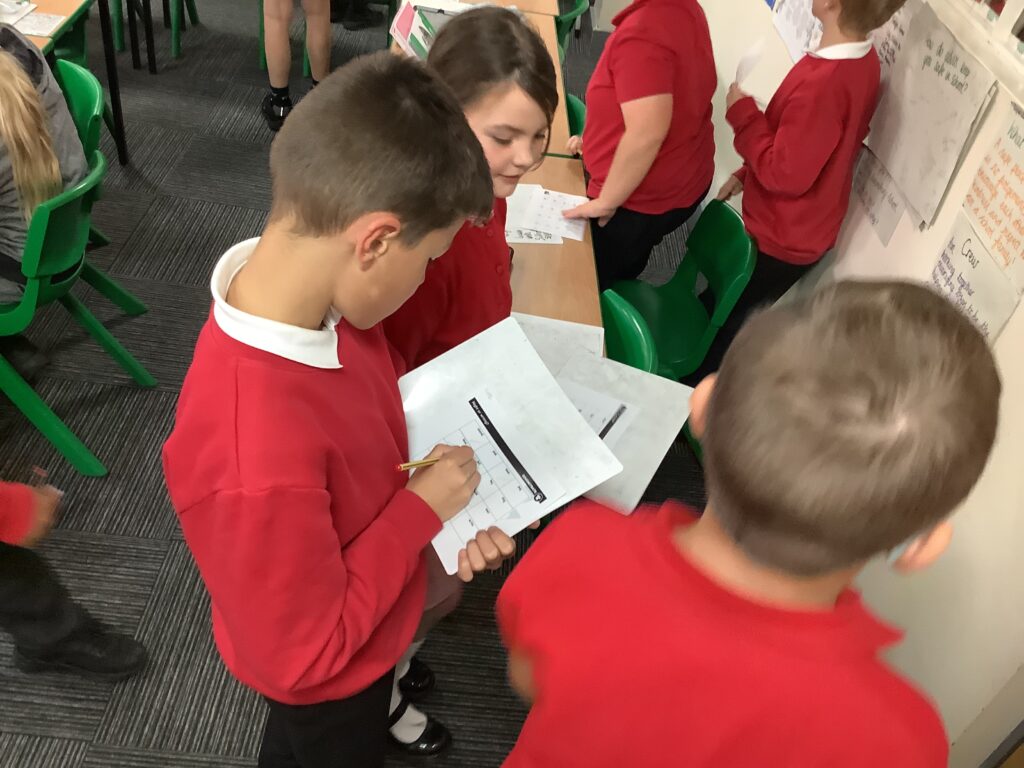
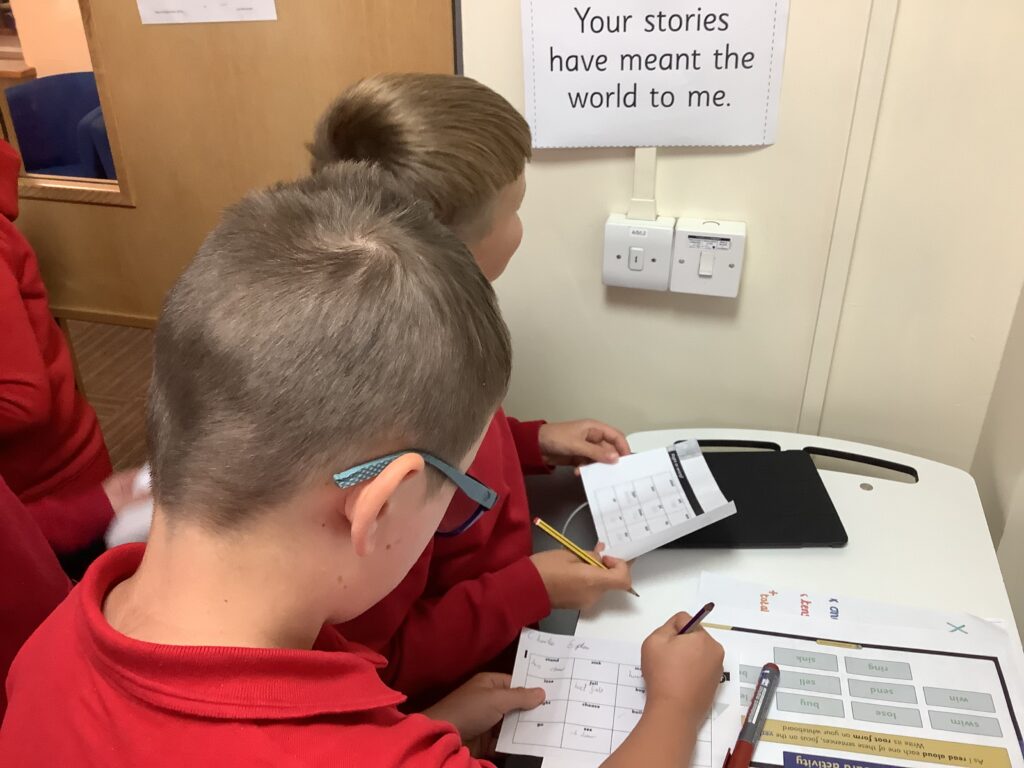
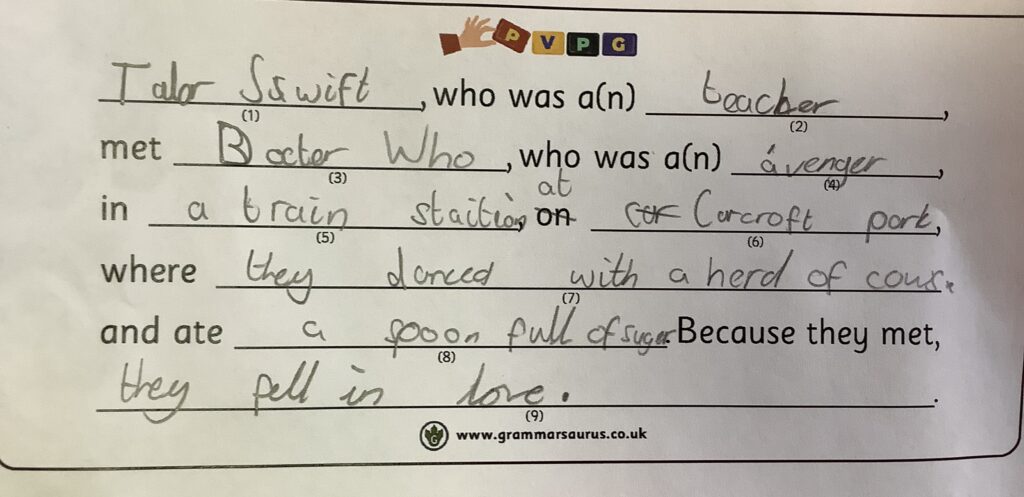
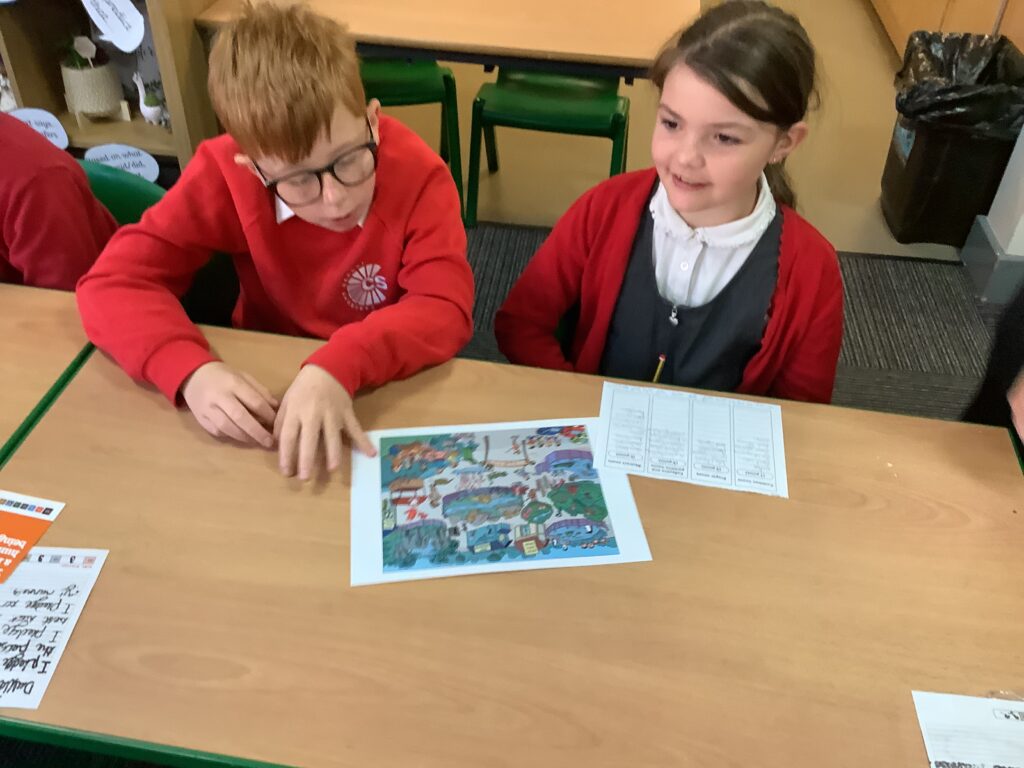
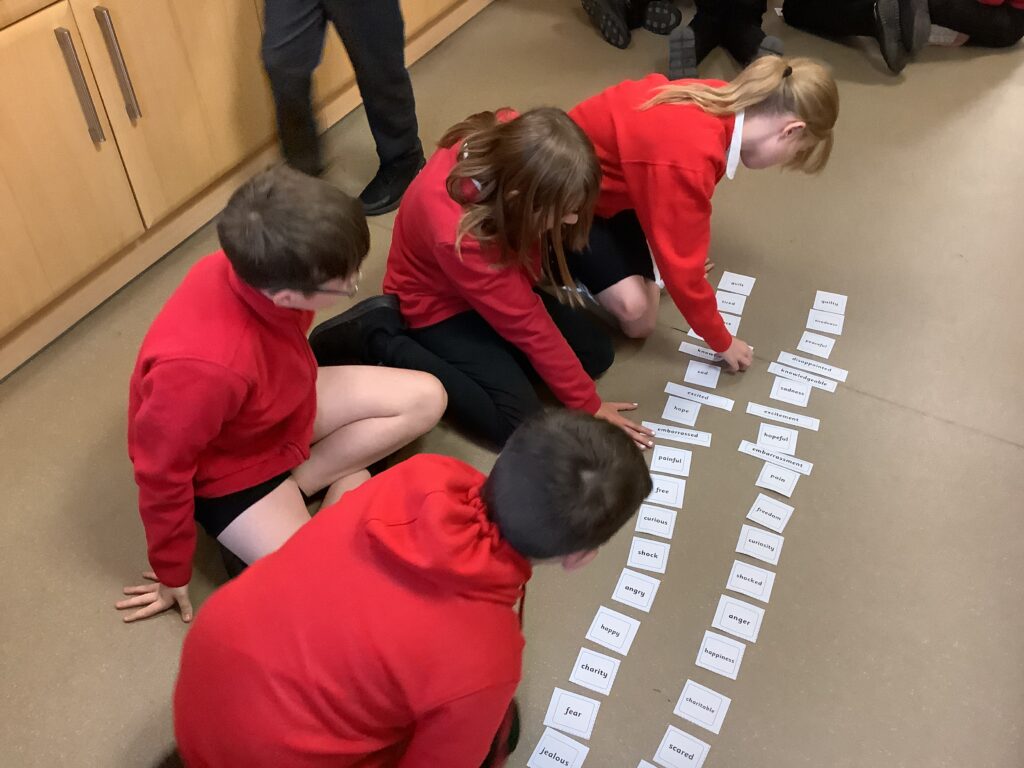
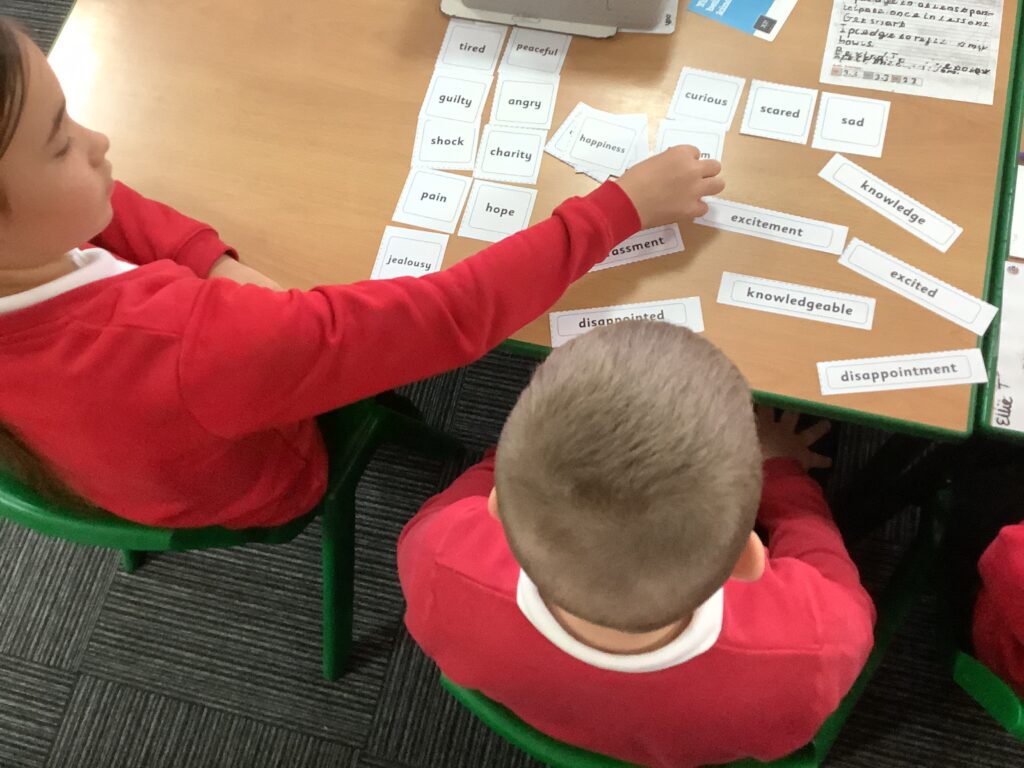
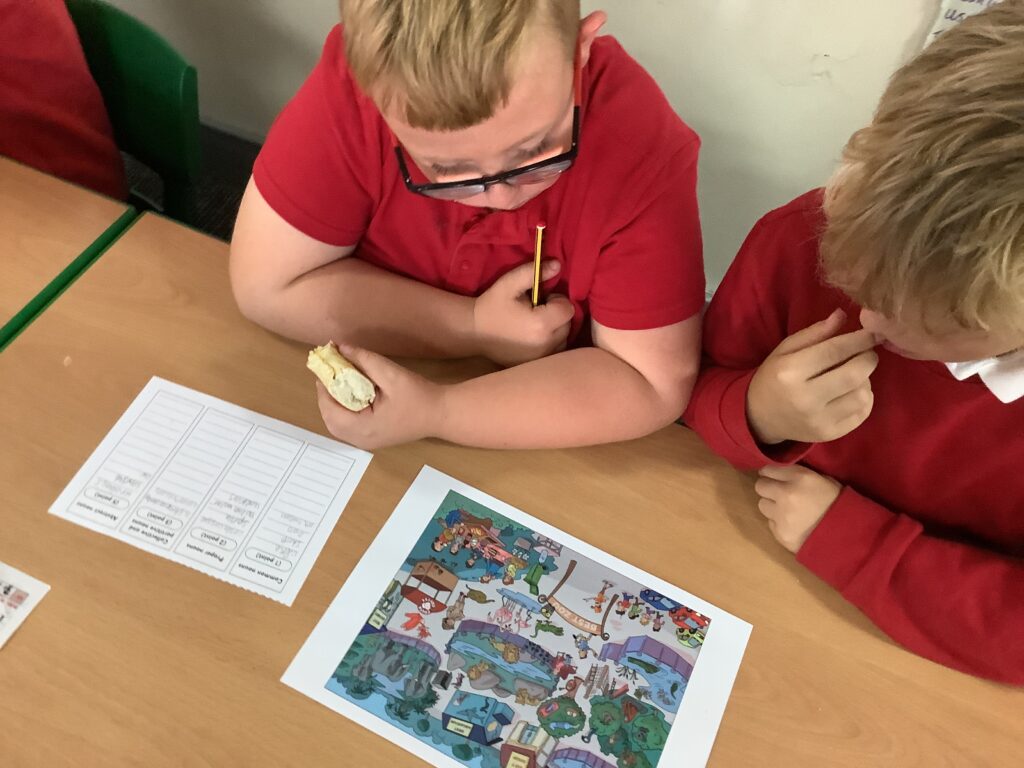
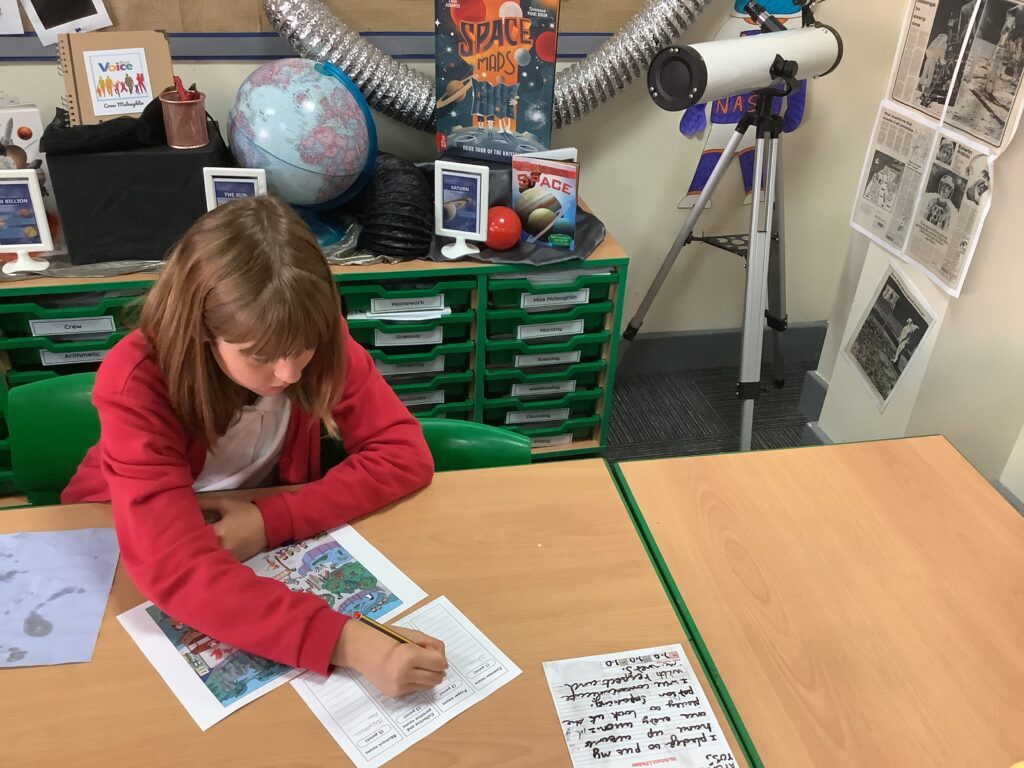
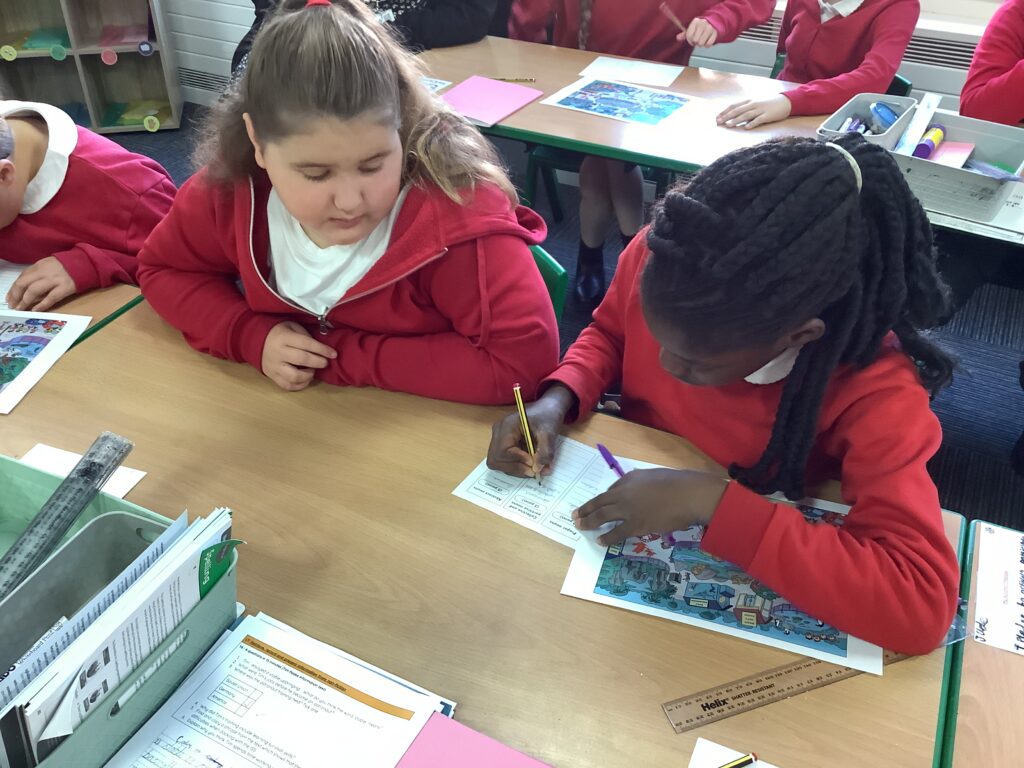
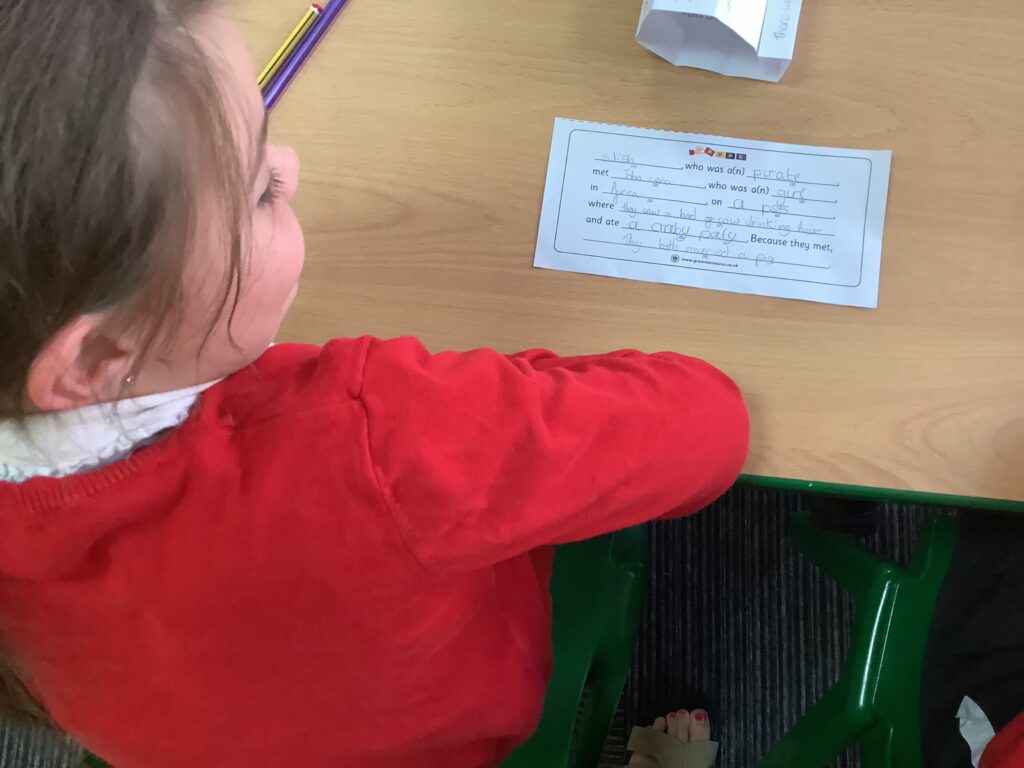
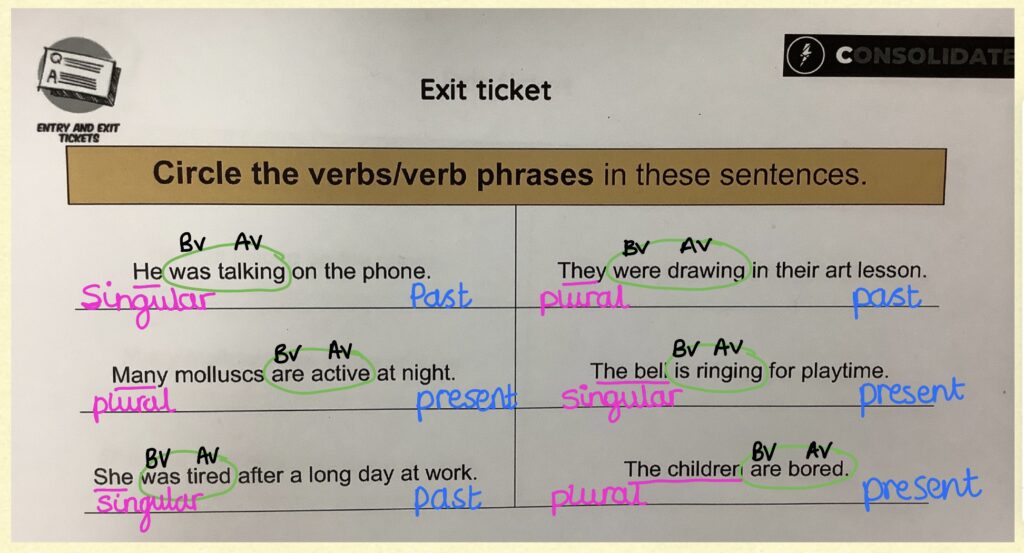
This is a lot to get your head around but the children have met their HoWL targets every lesson and as a result met their learning targets. Check out our learning journey of our PVPG so far!
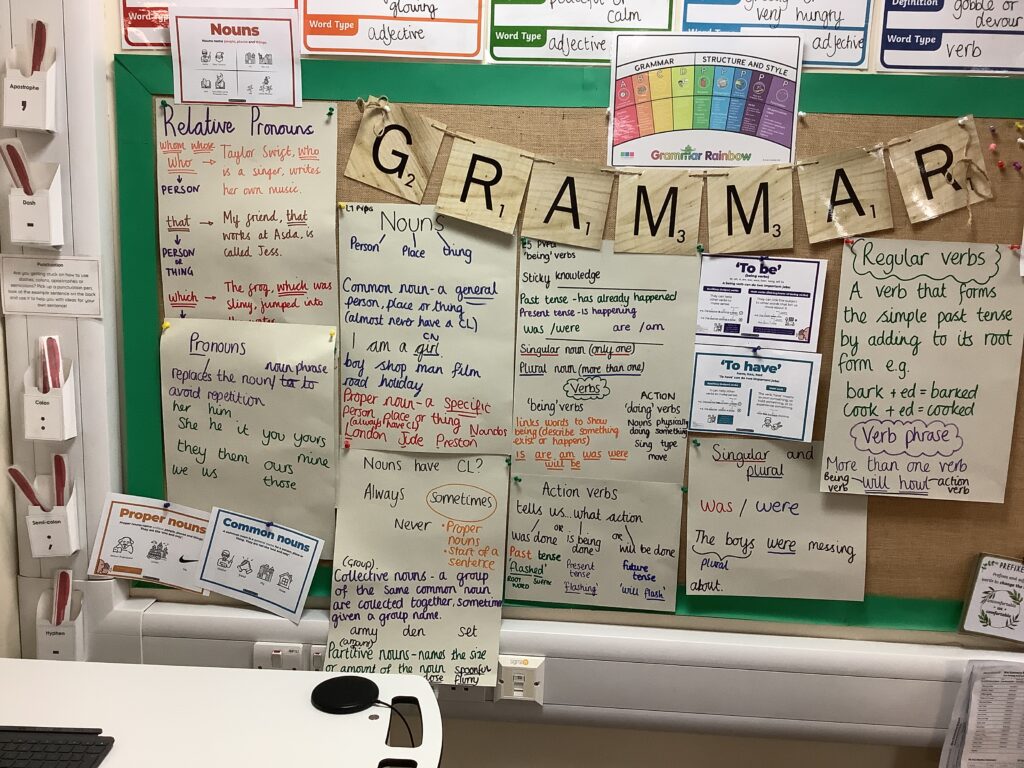
We had a great lesson in Crew MI where we began thinking how we could build single clause sentences that included a subject and a verb. We were able to identify these and then decide where the capital letter and full stop should go. Some of us even had a go at including a conjunction to link the clauses.
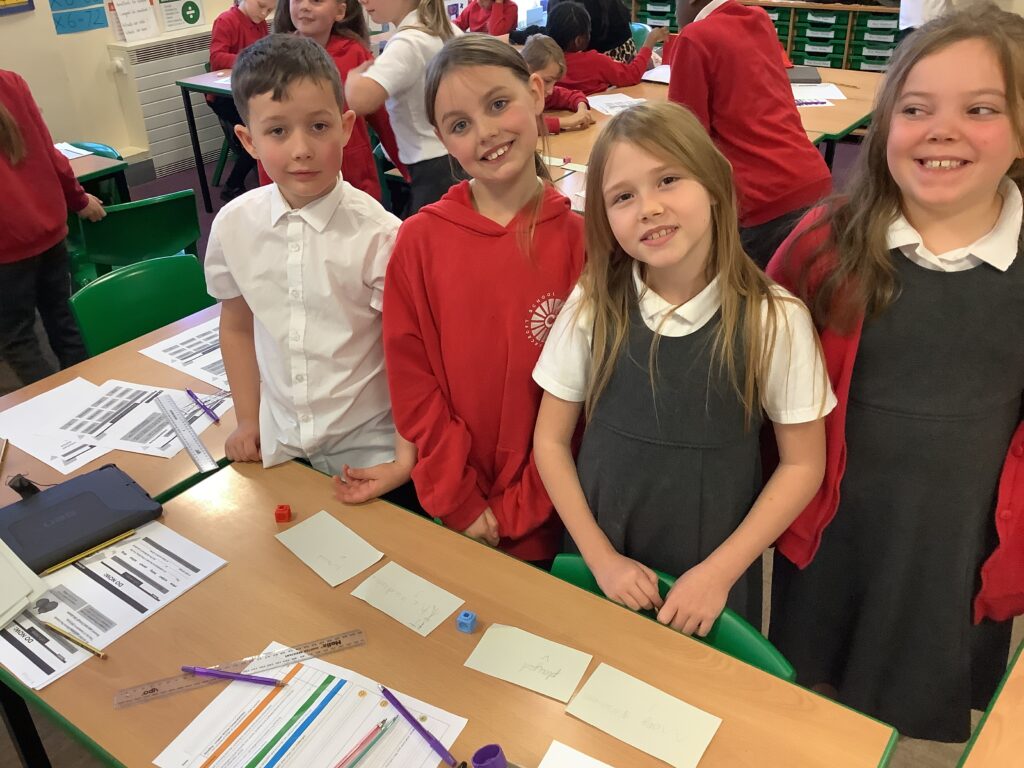
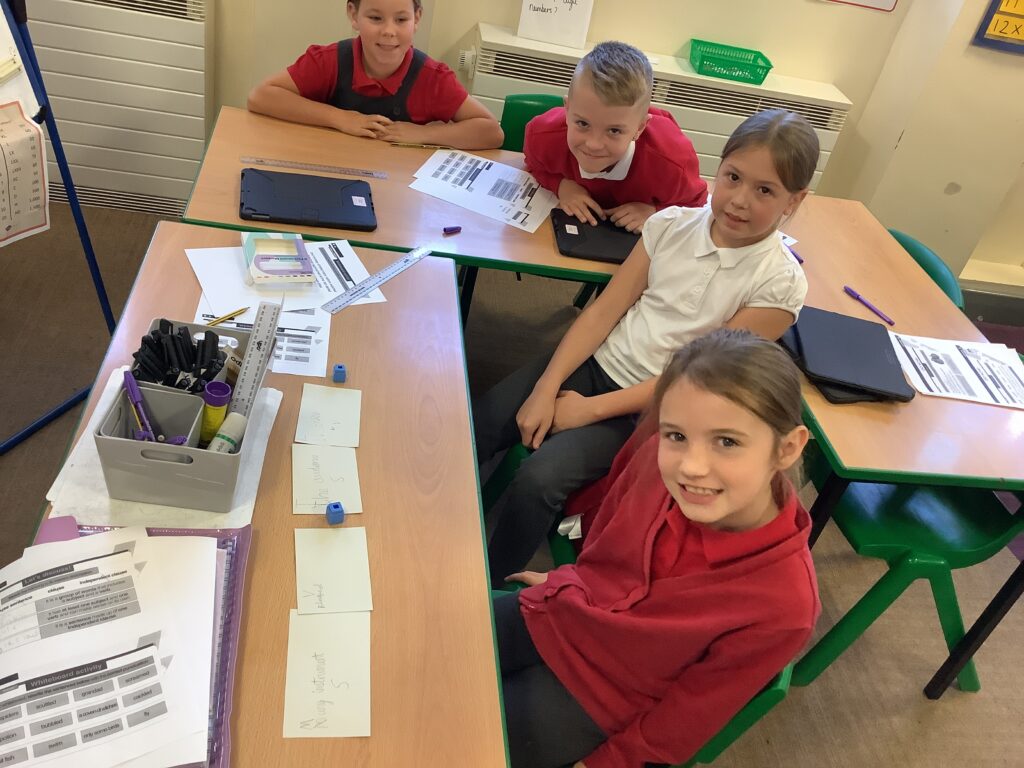
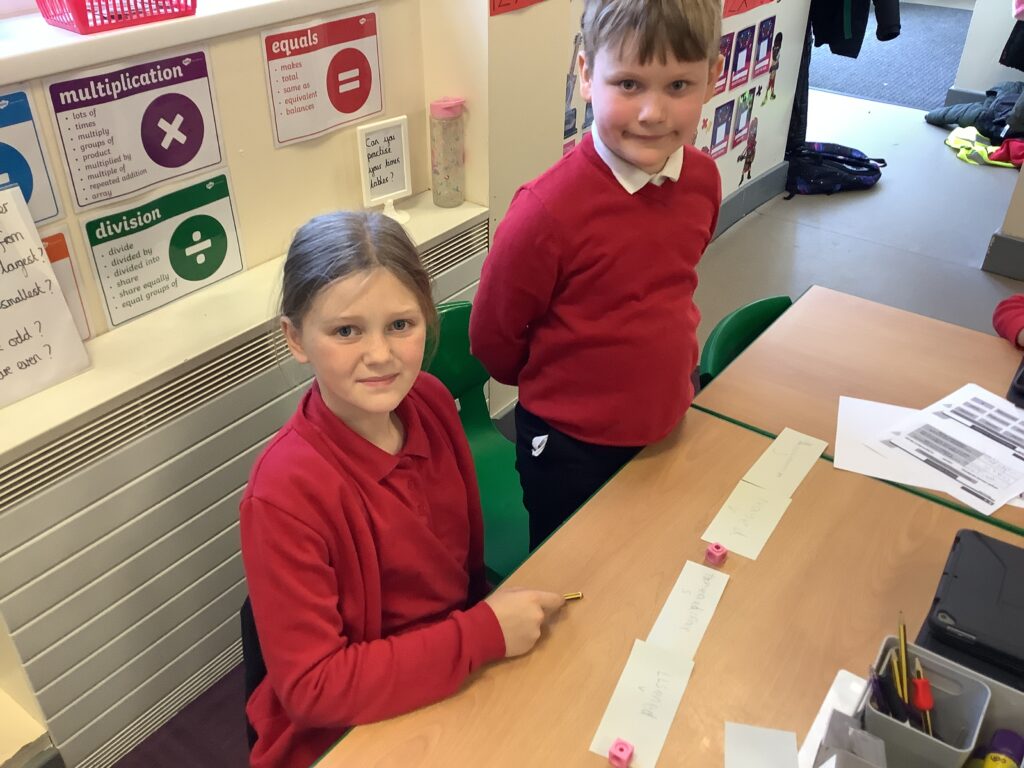
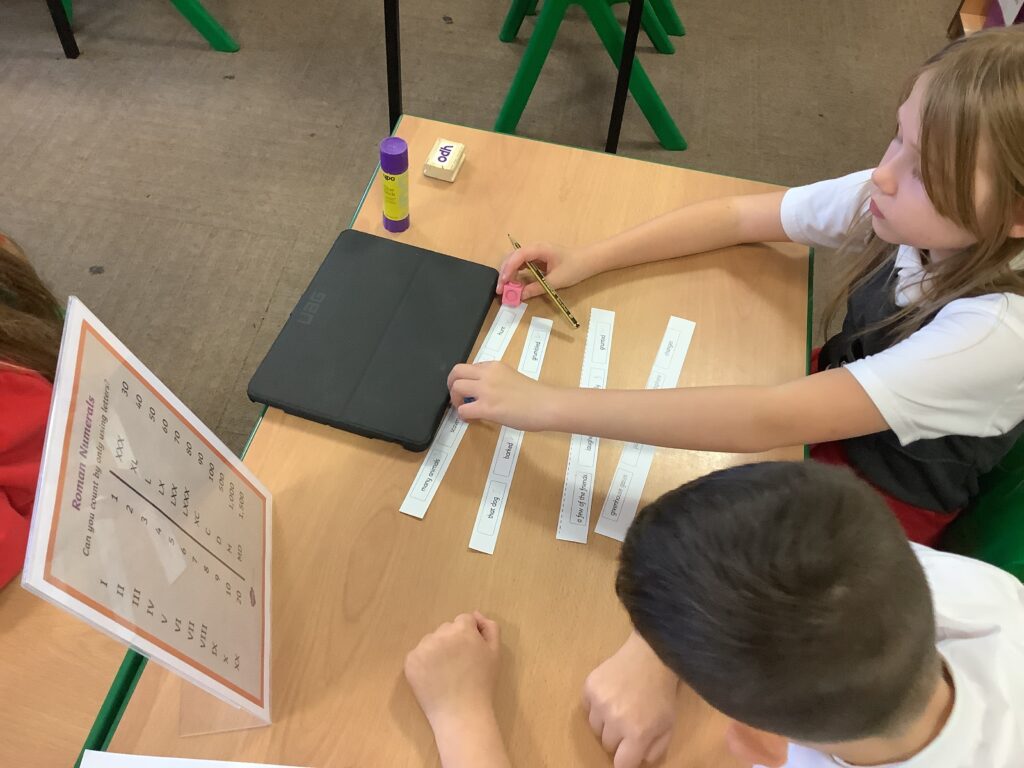
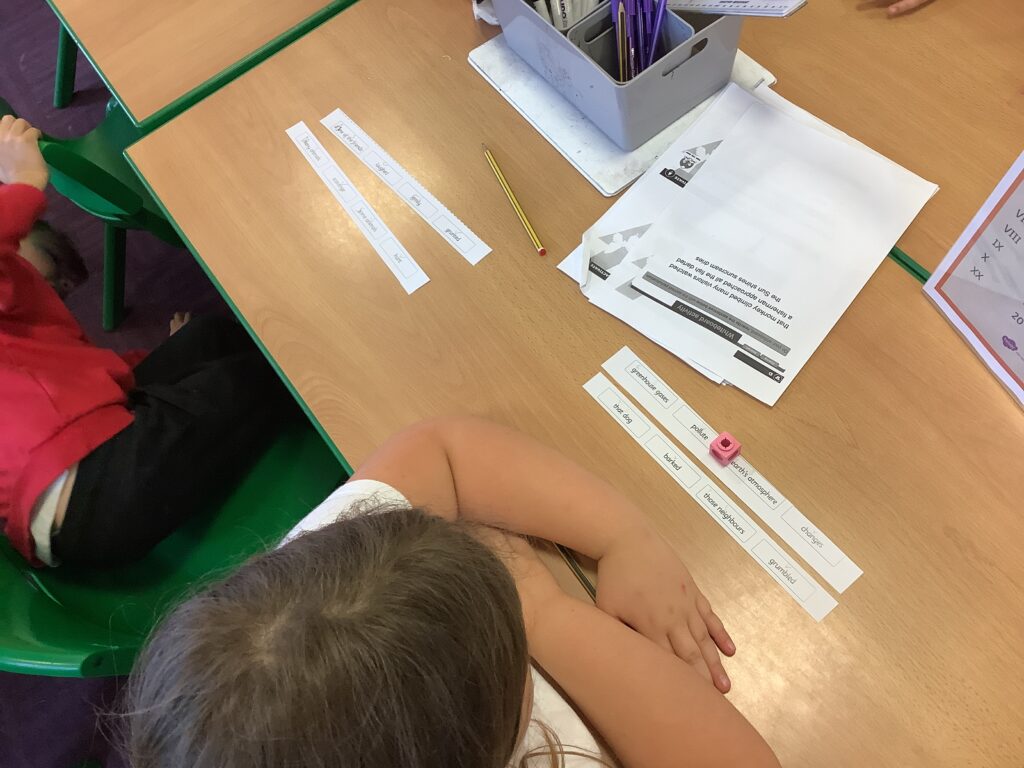
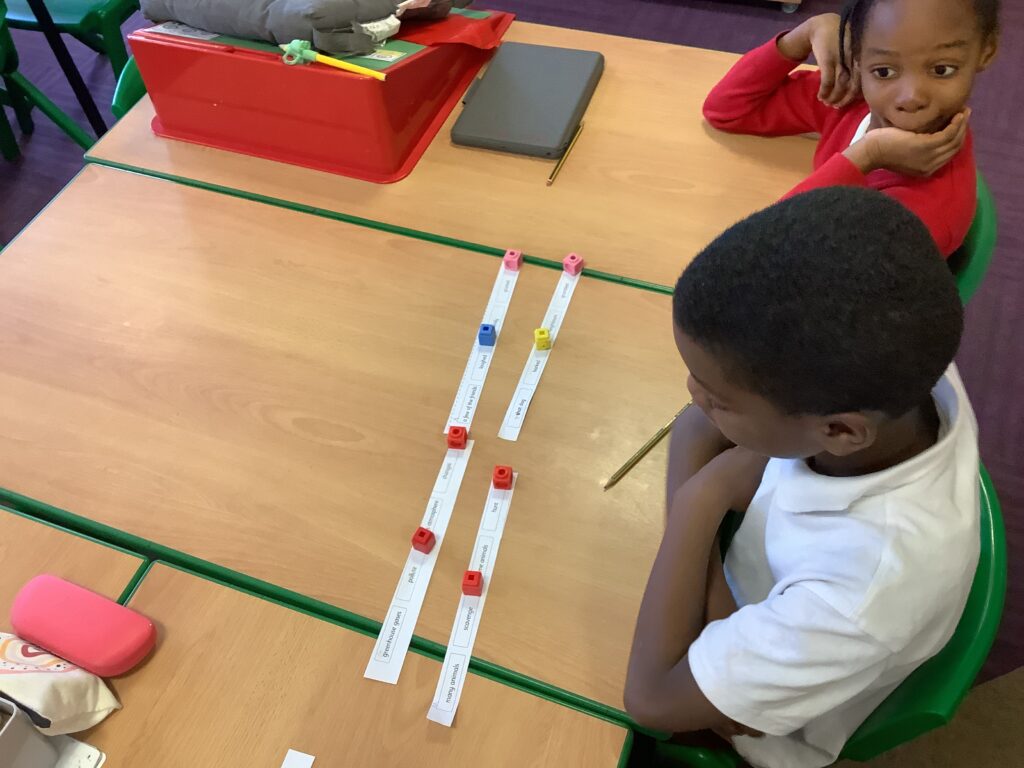
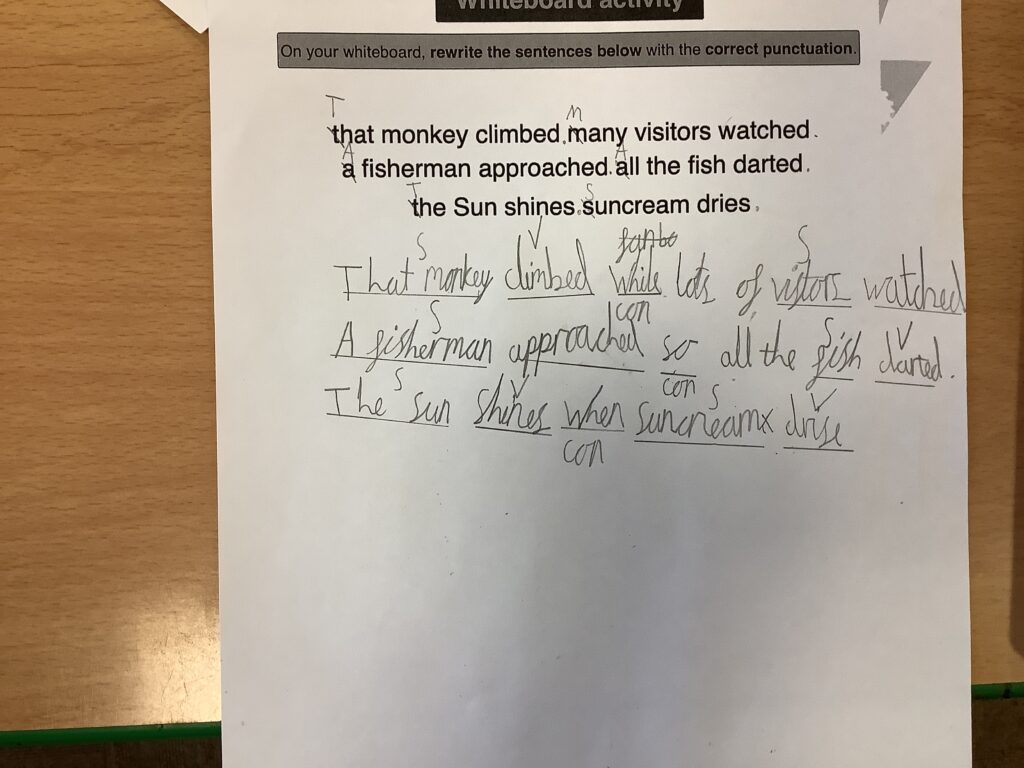
Today we consolidated our learning on single clause sentences. We recapped the terms clause, independent clause and single-clause sentence. In order to do this we rewrote a series of sentences showing where the verbs and subjects are in the sentences then we had to decide on where the punctuation needed to go. We explained why the punctuation was needed in the different places in the sentence using the vocabulary full independent clause, subject and verb. We took part in a series of consolidation activities before moving onto building single-clause sentences with a focus on pronouns. We highlighted nouns and noun phrases that had been repeated and used other pronouns to replace these. Our activity allowed us to demonstrate our learning so far where we identified single clause sentences which used pronouns. We will continue to build on this tomorrow 🙂
